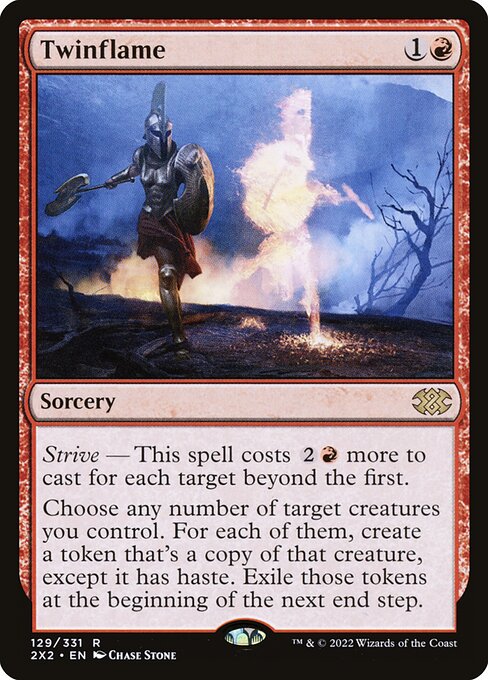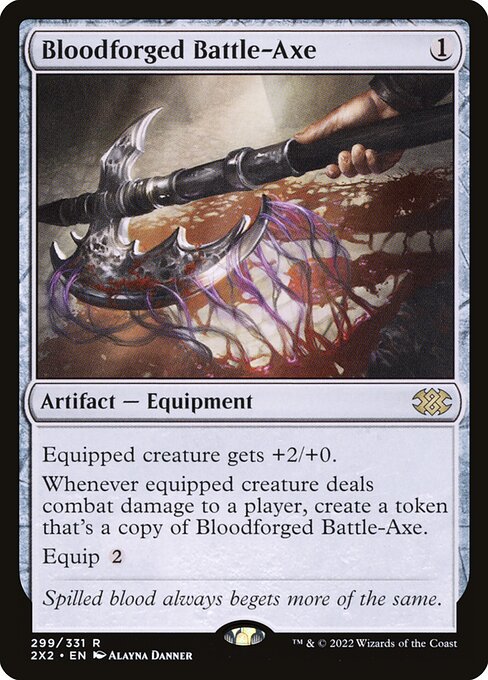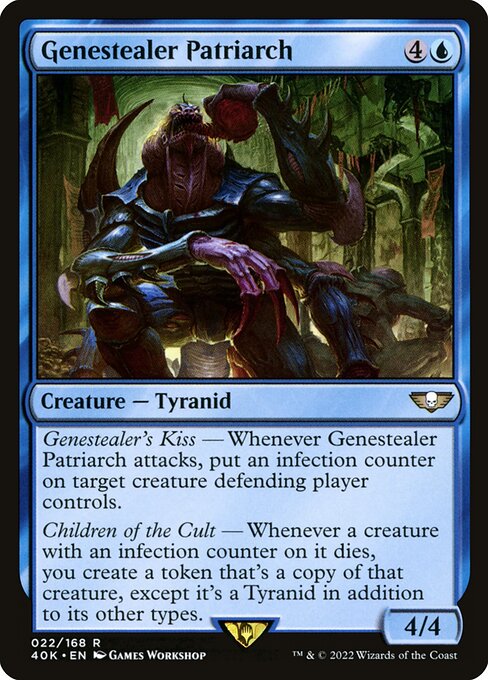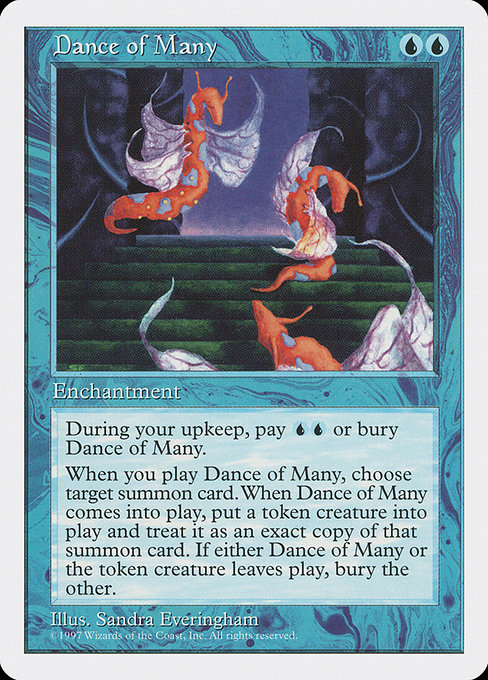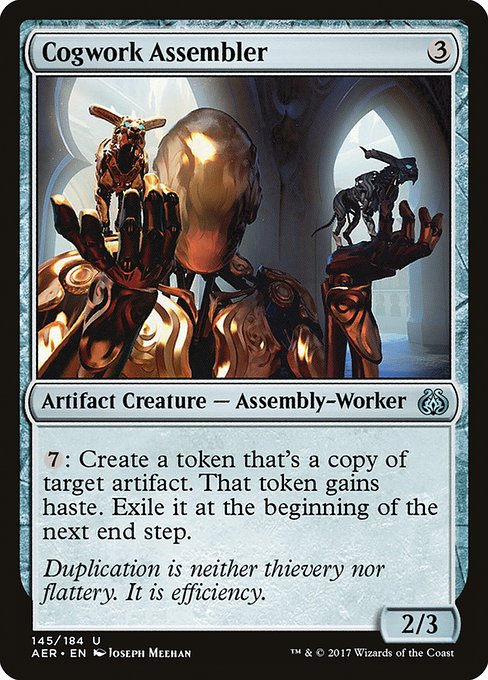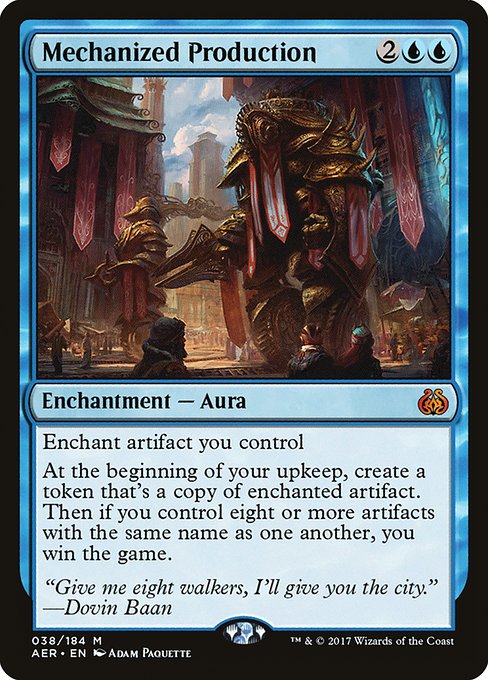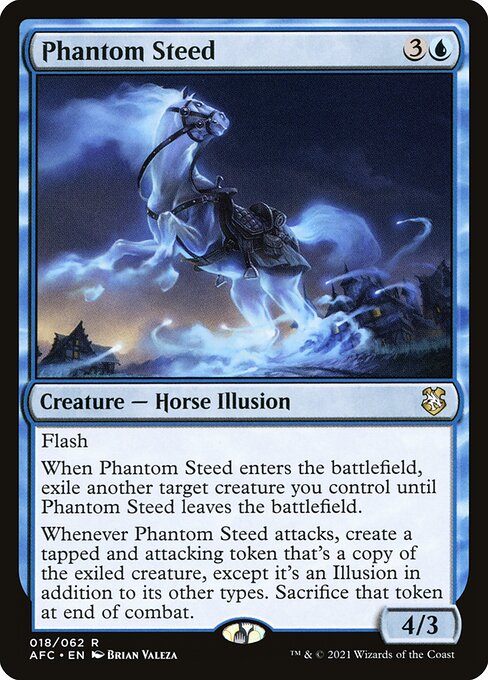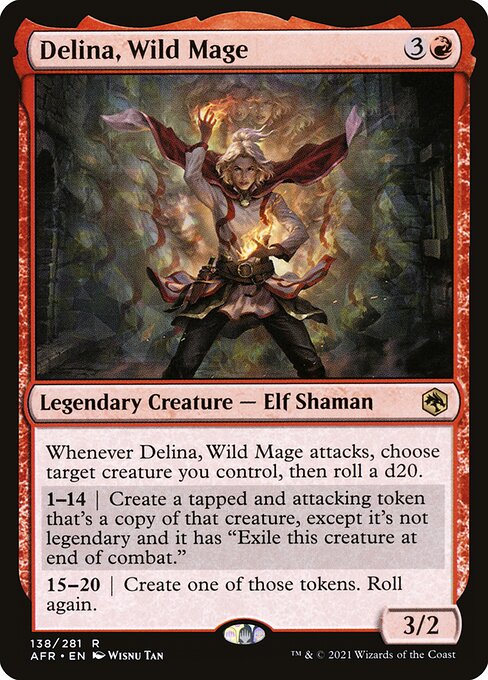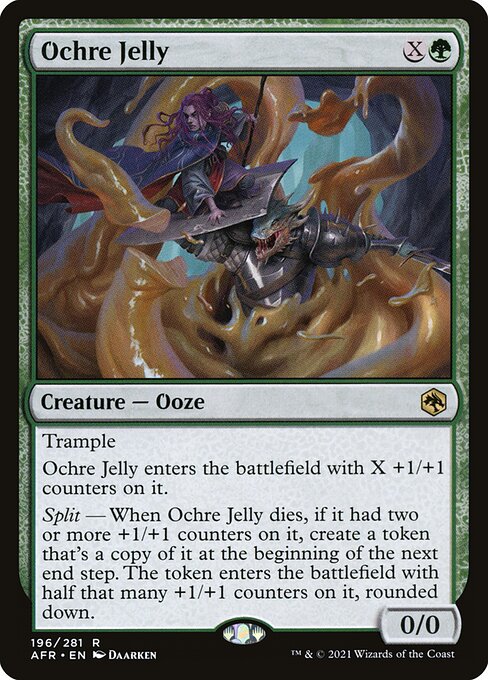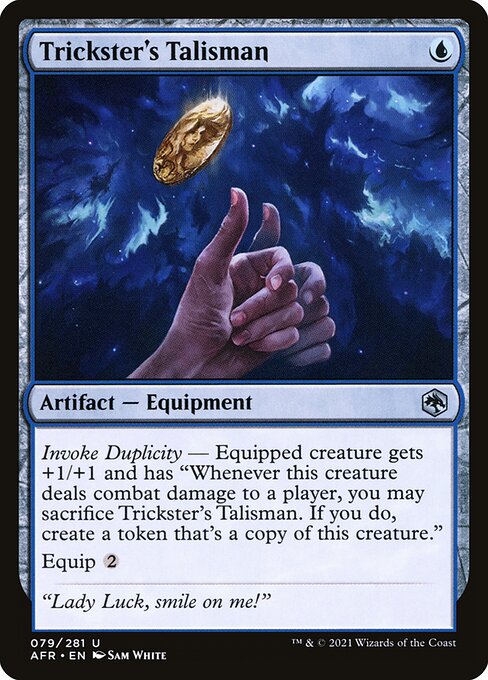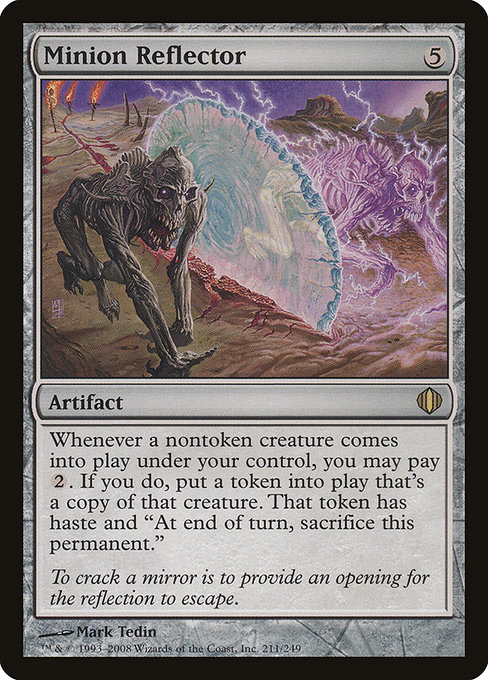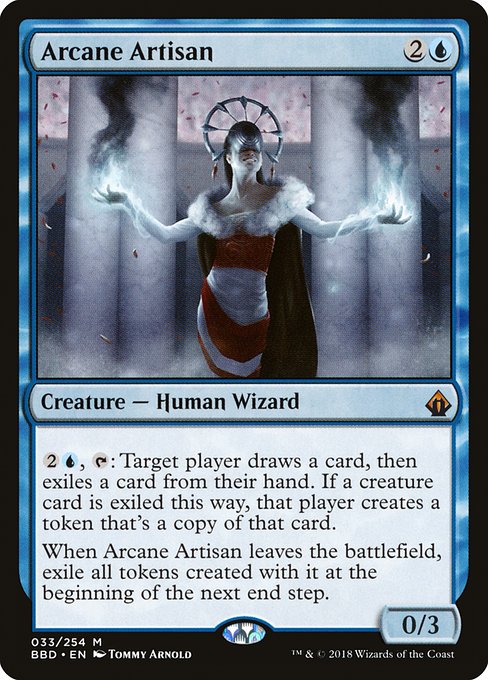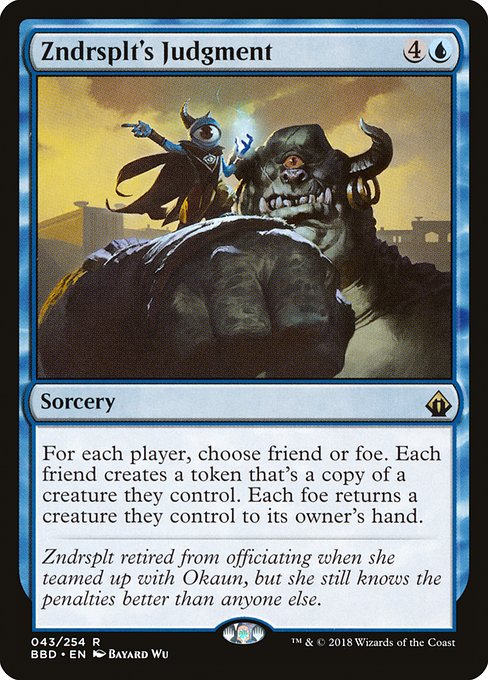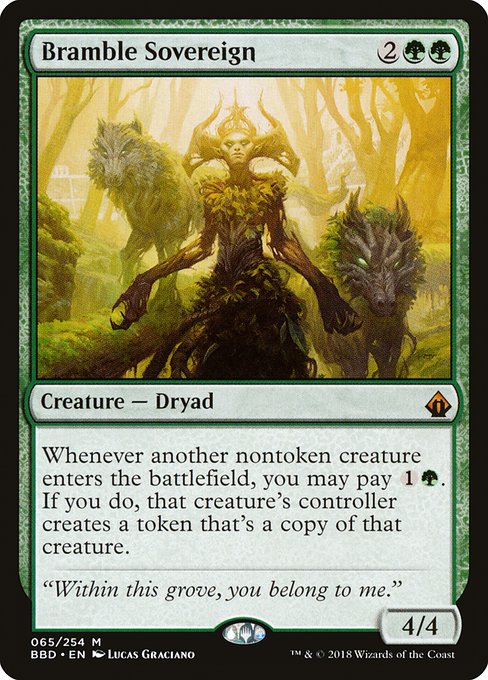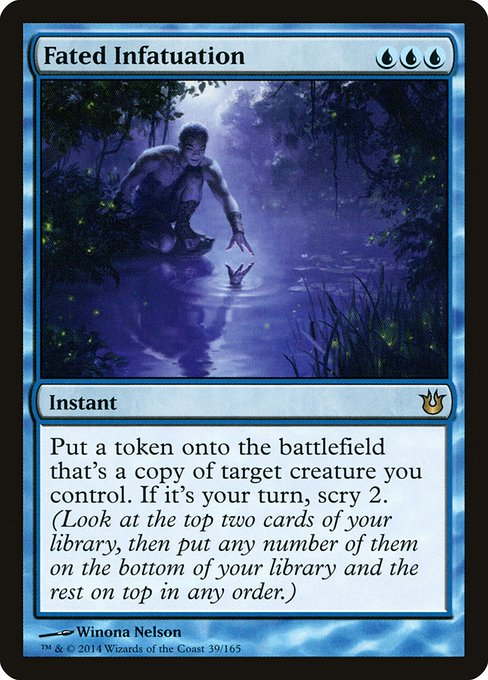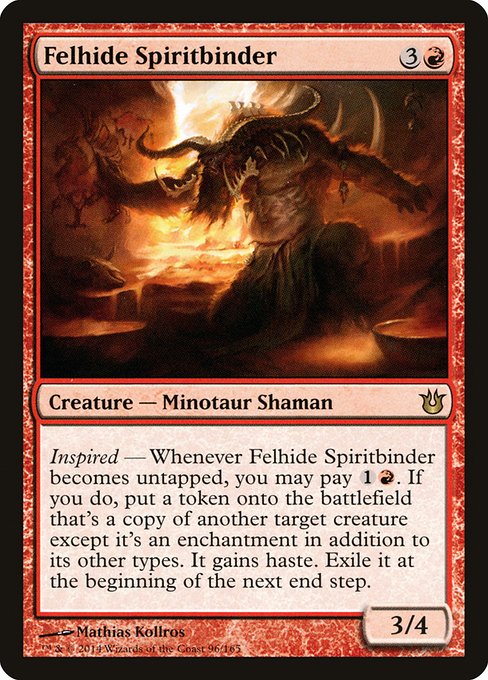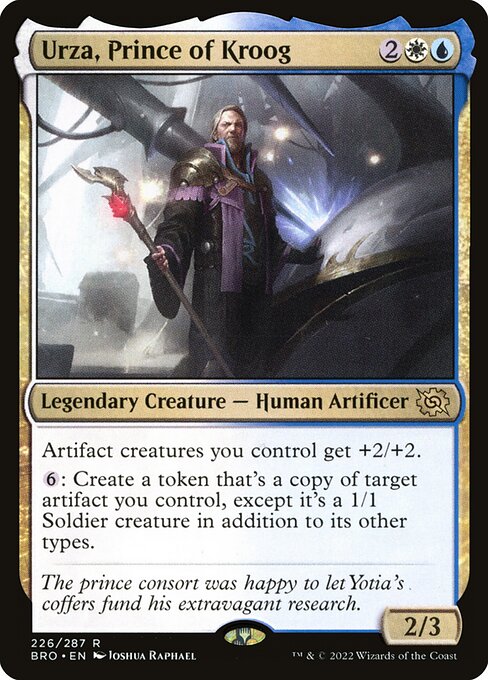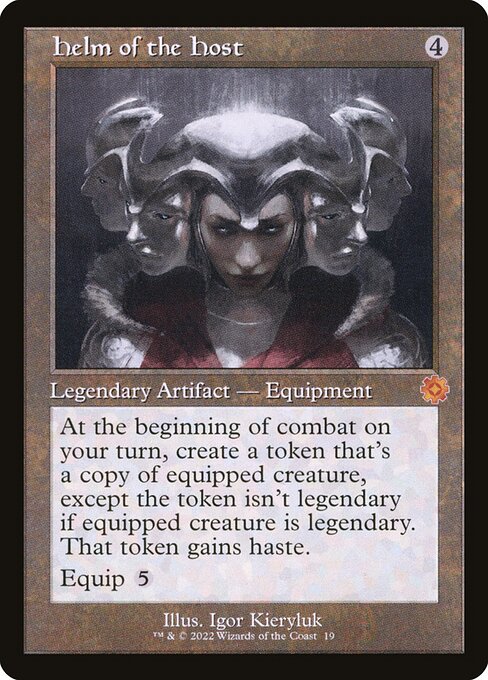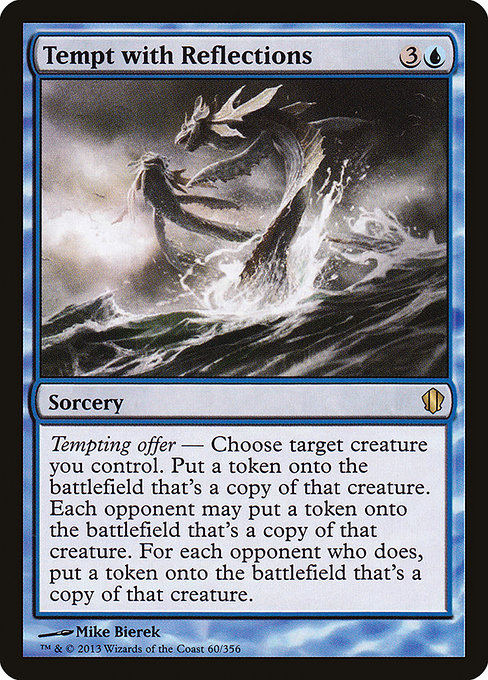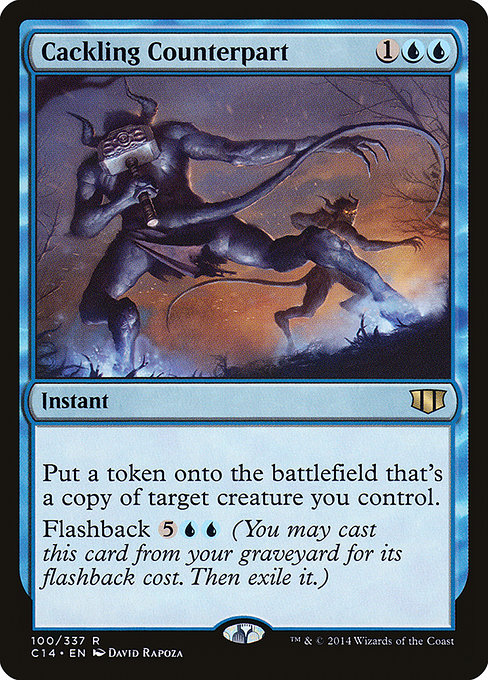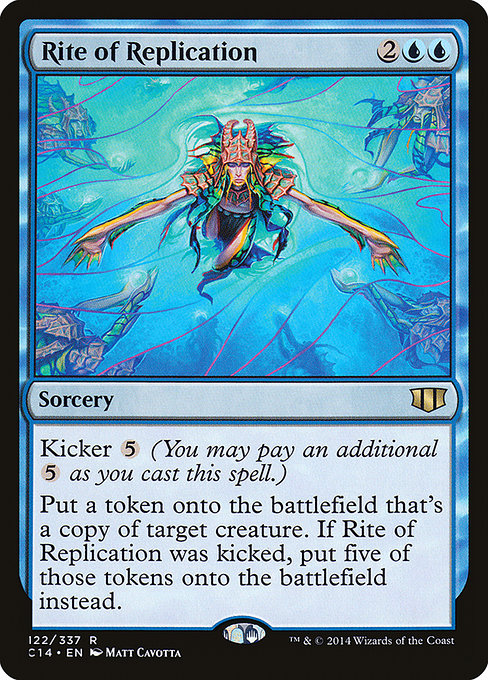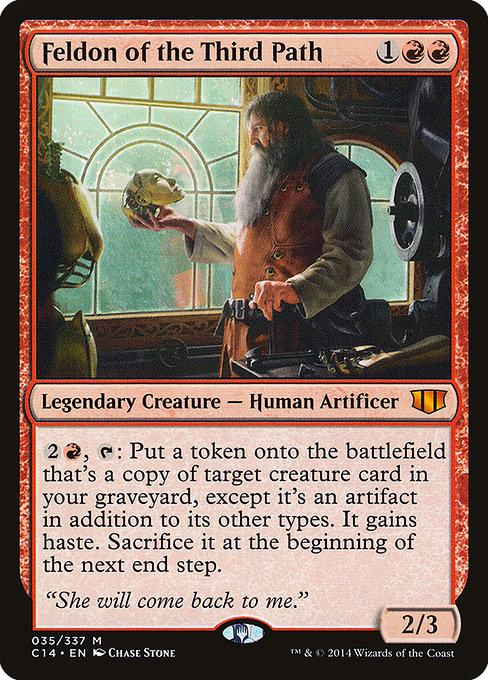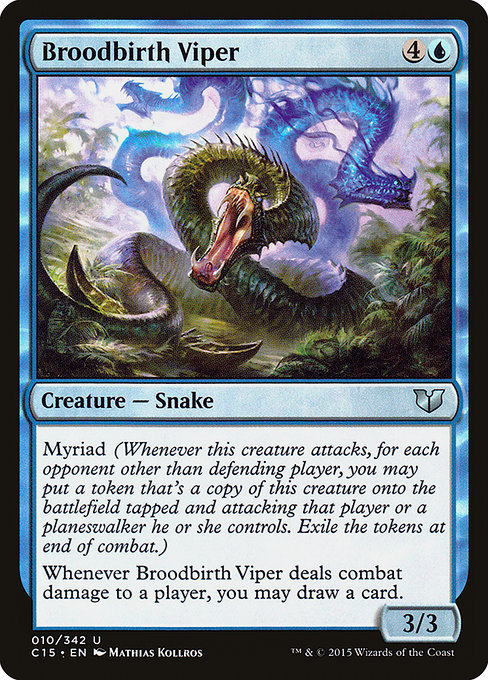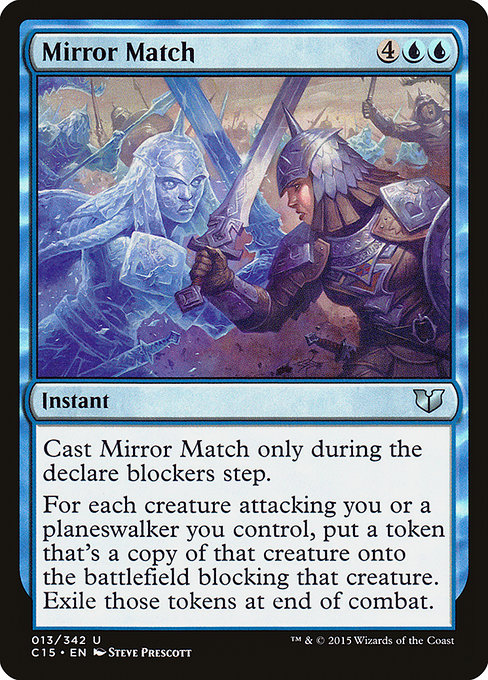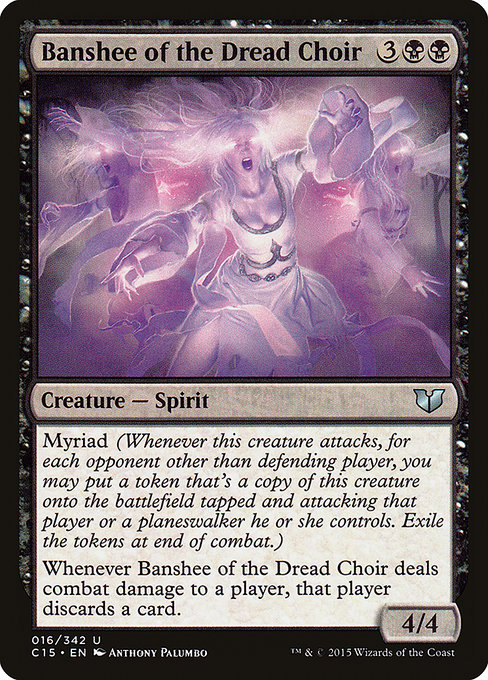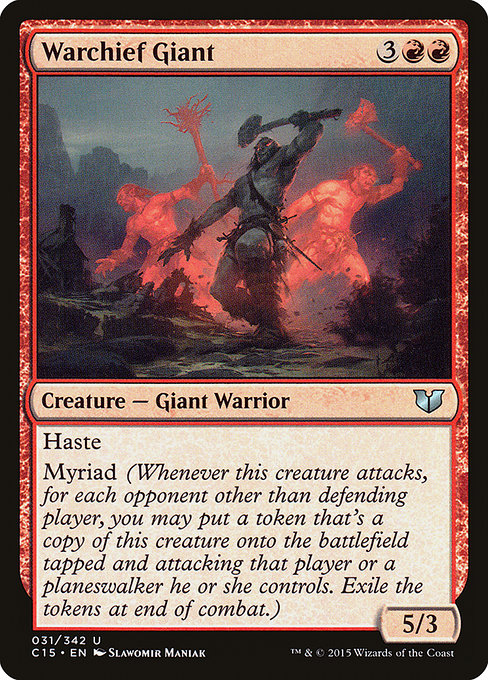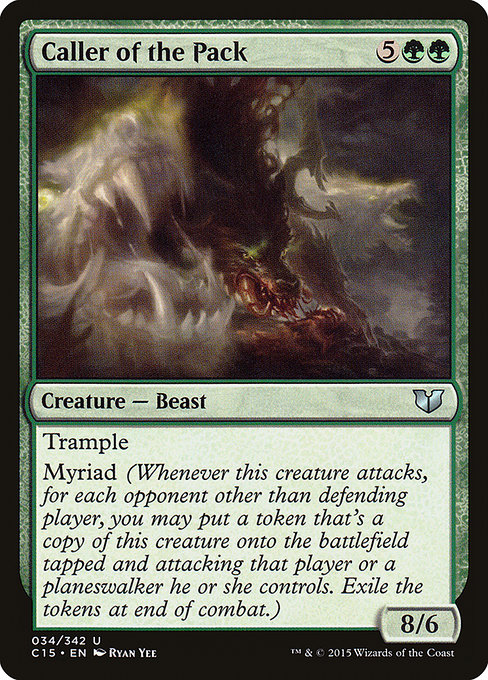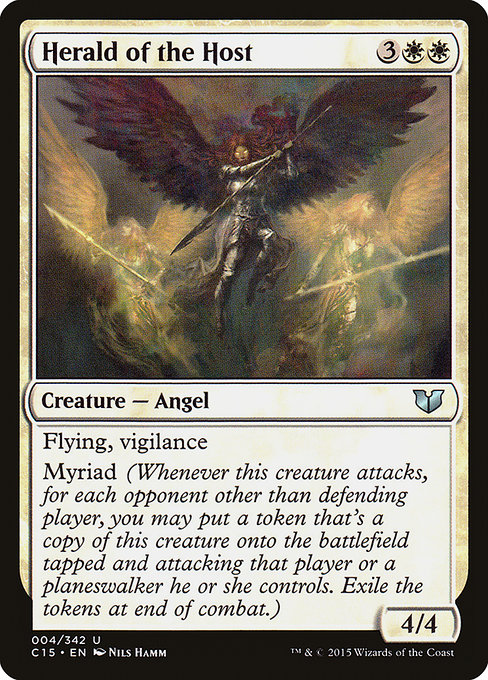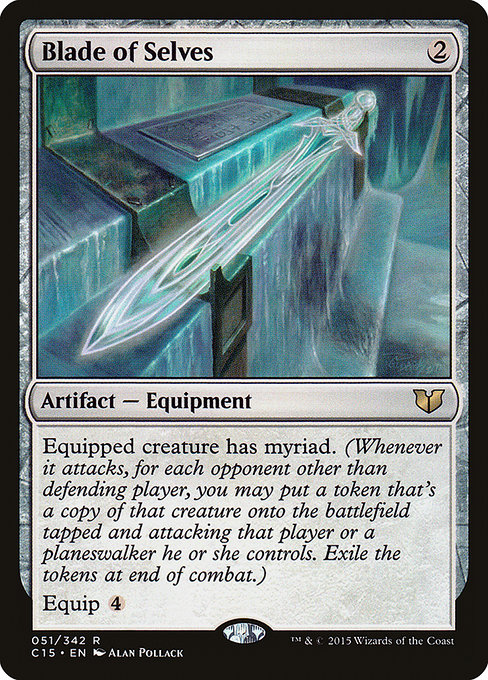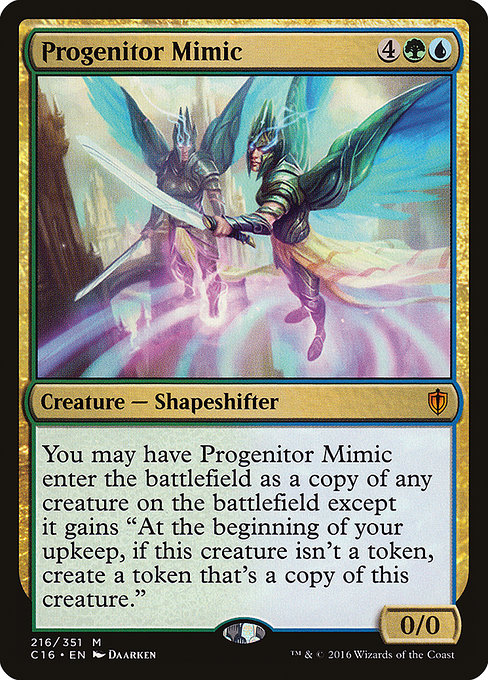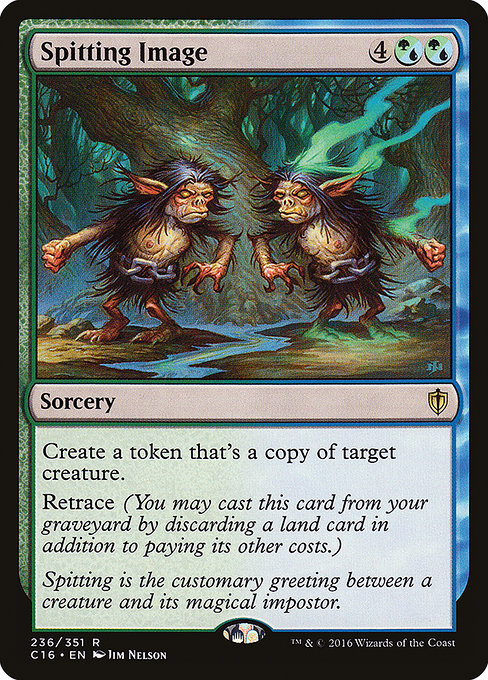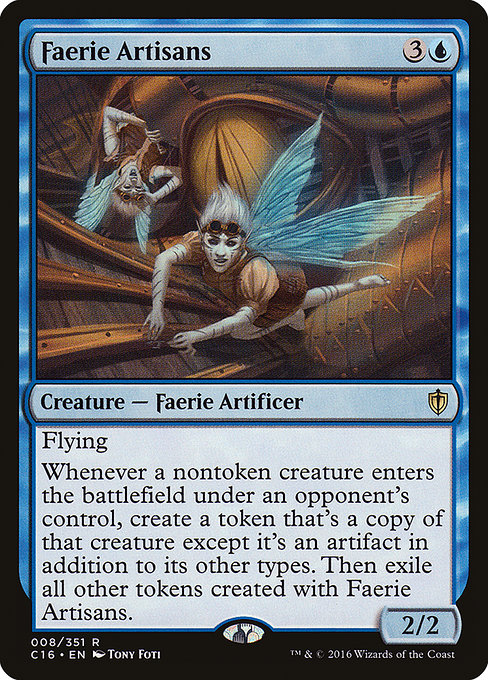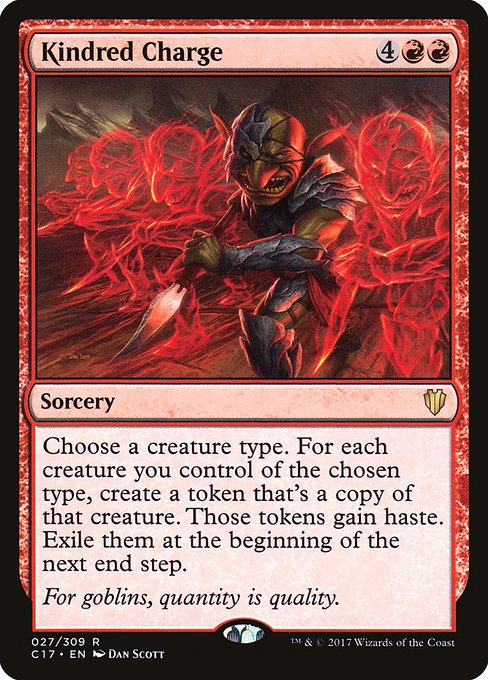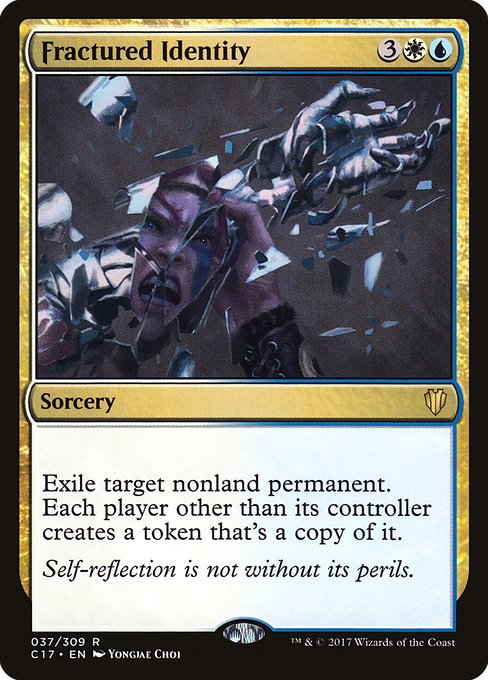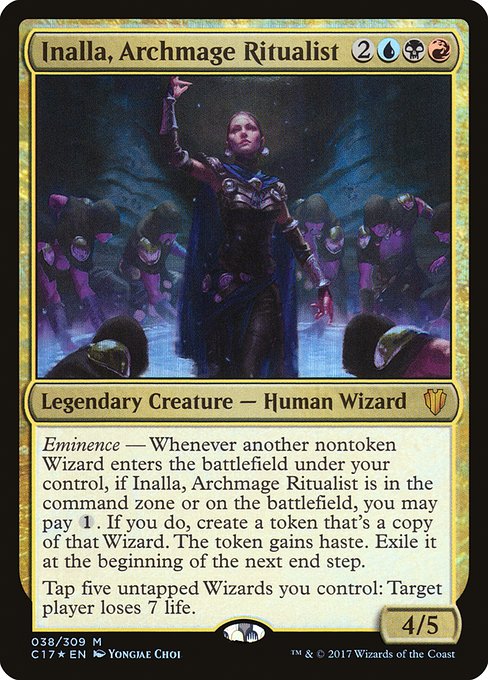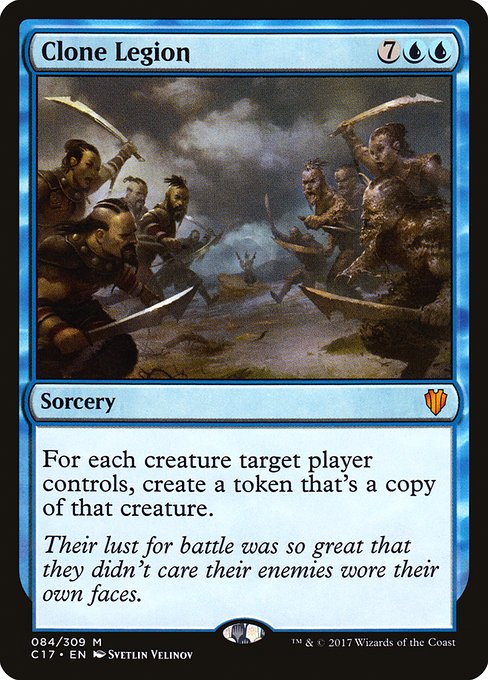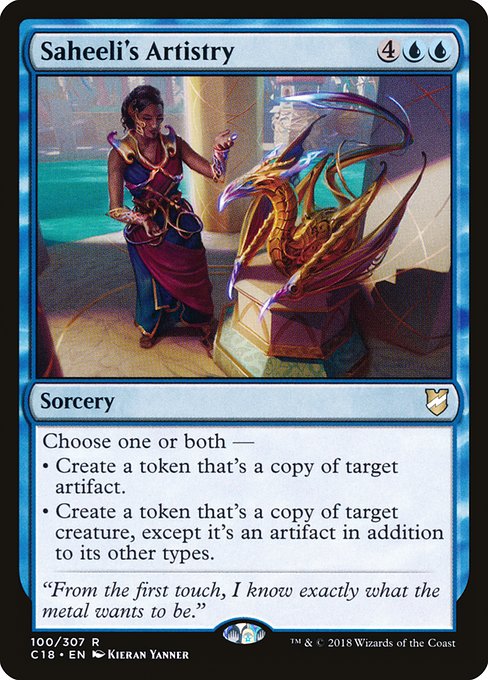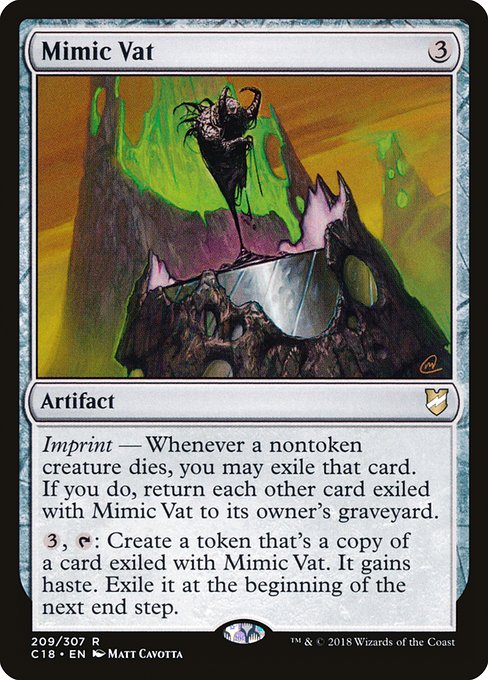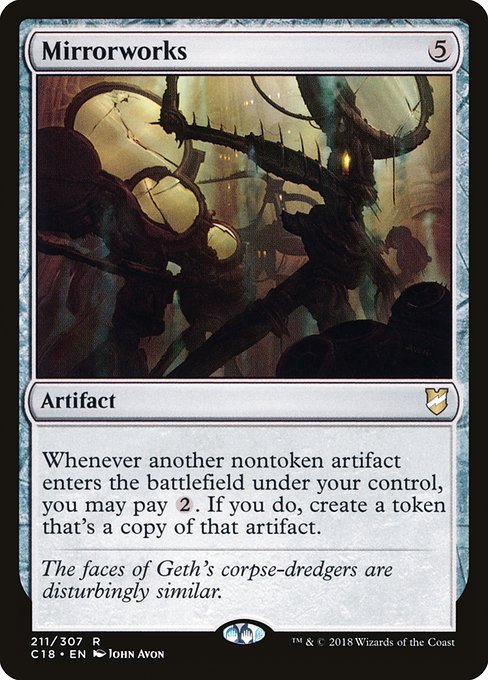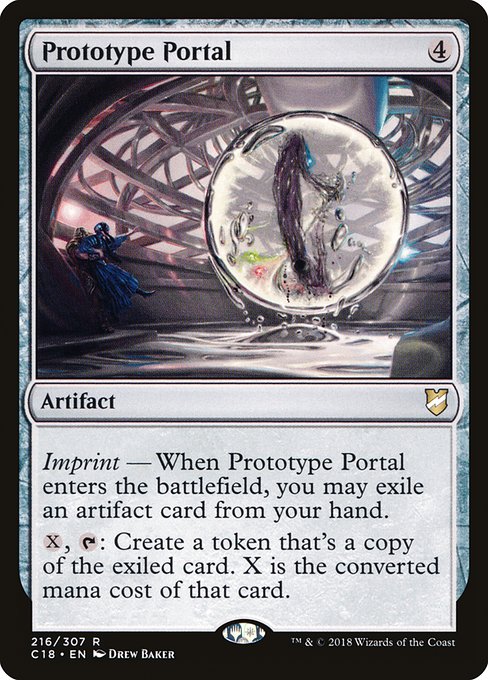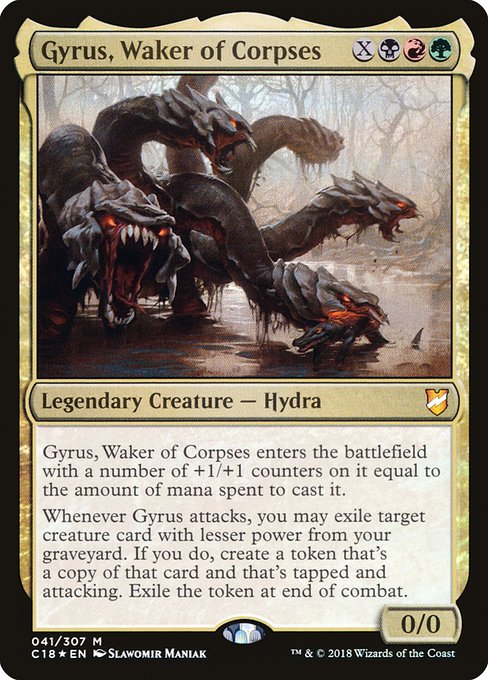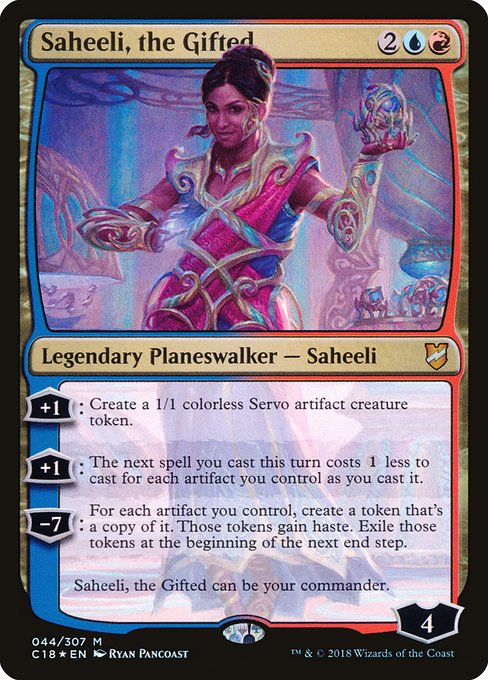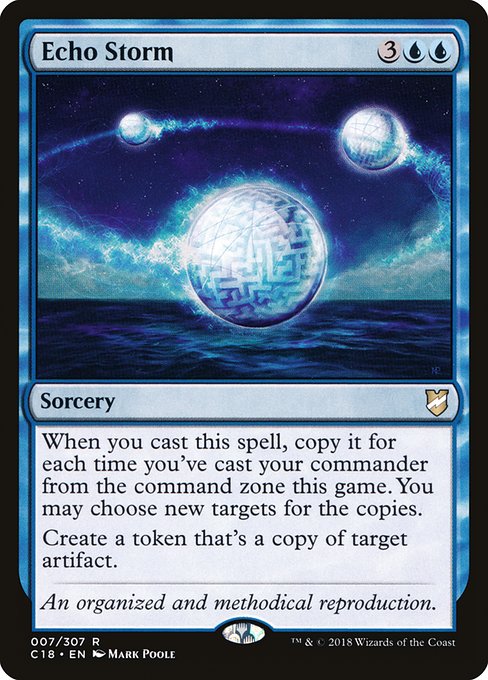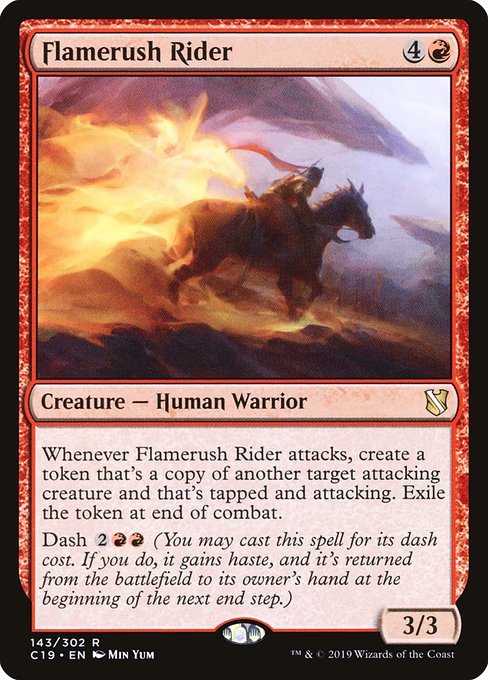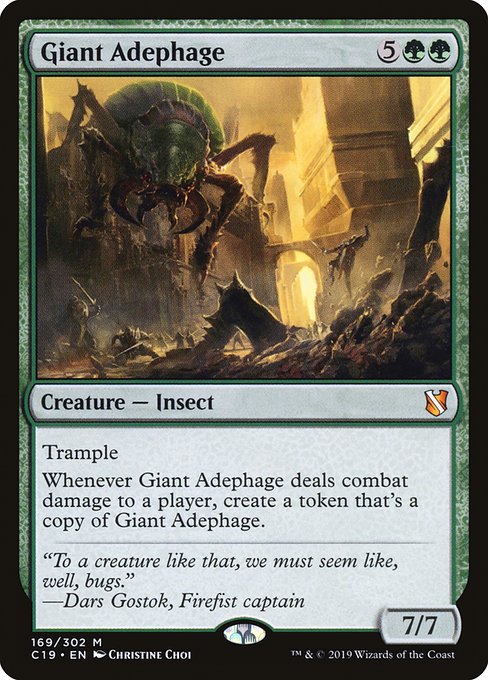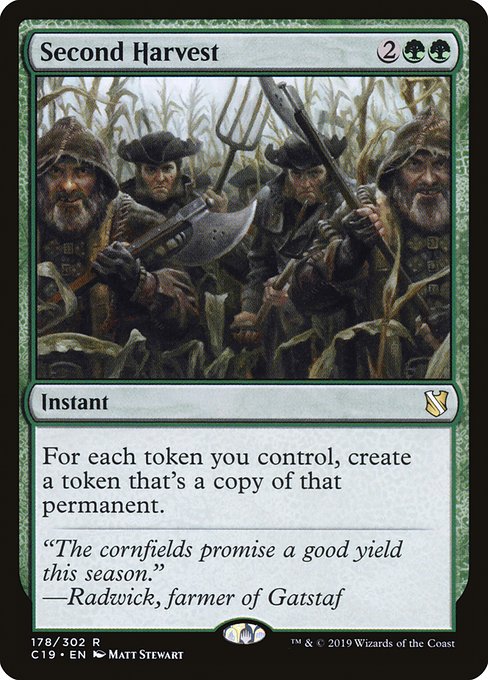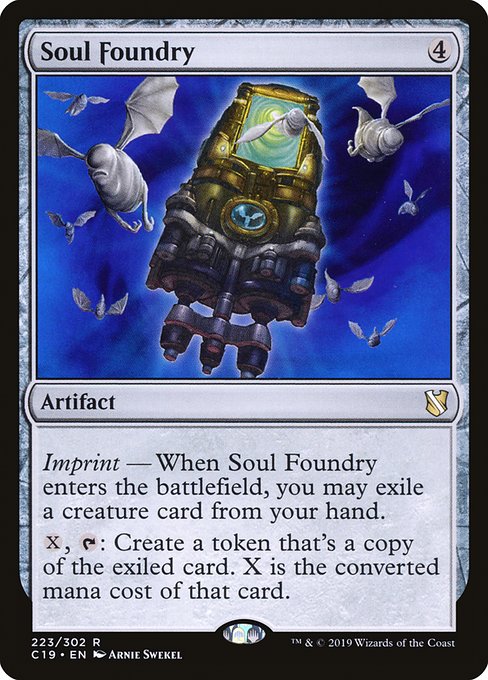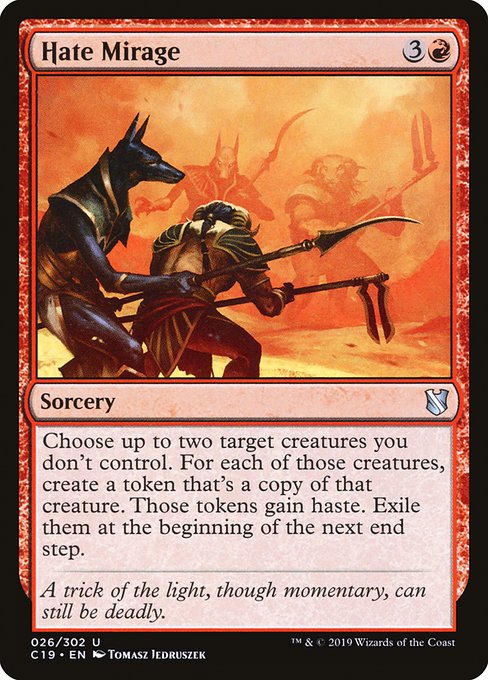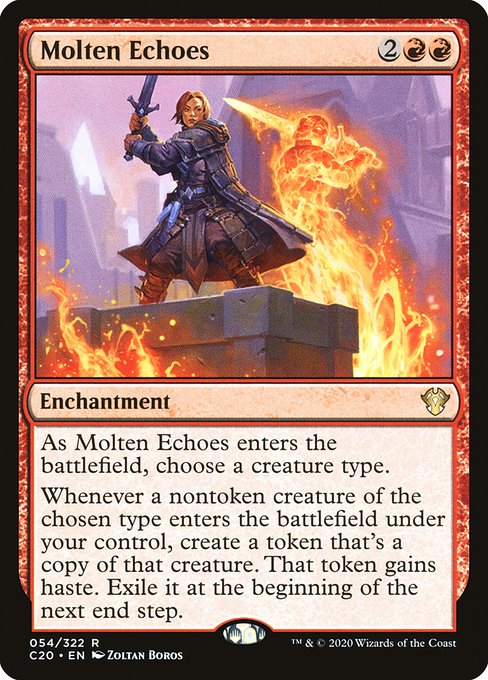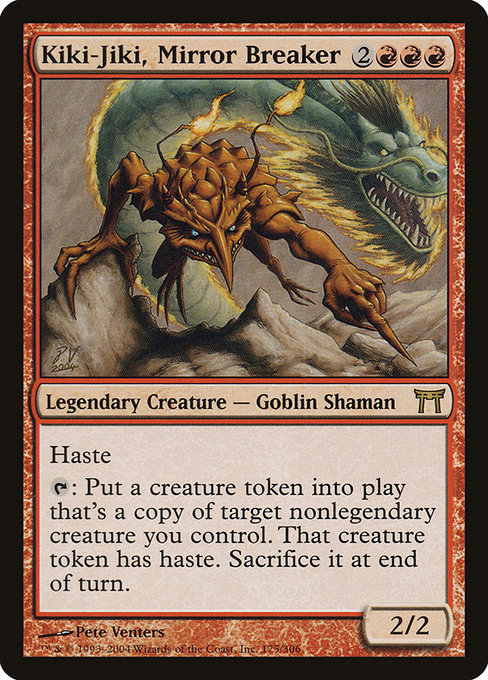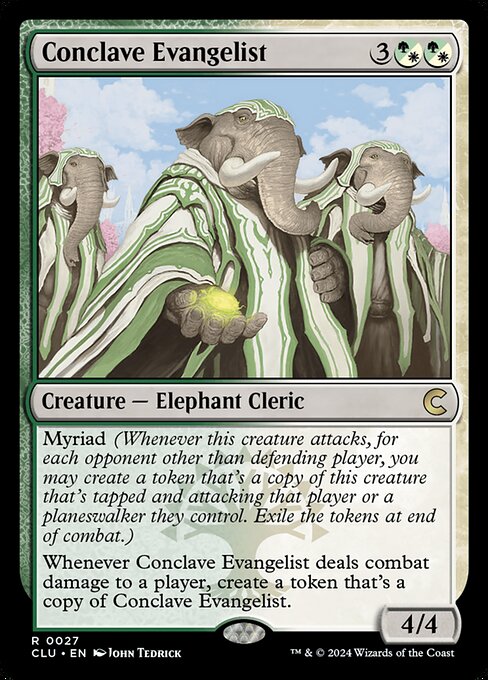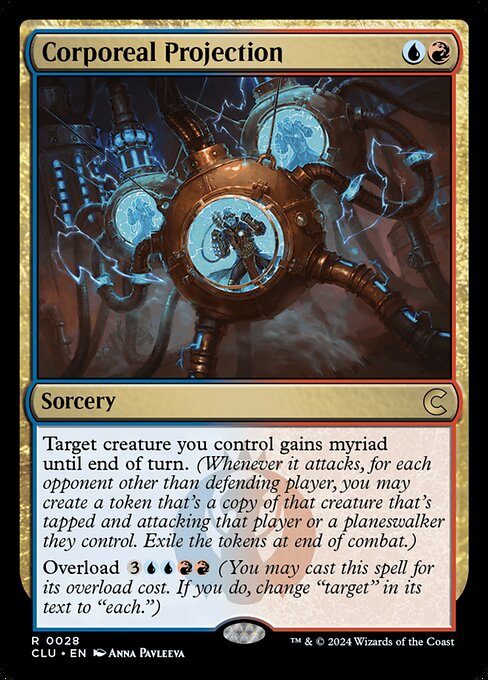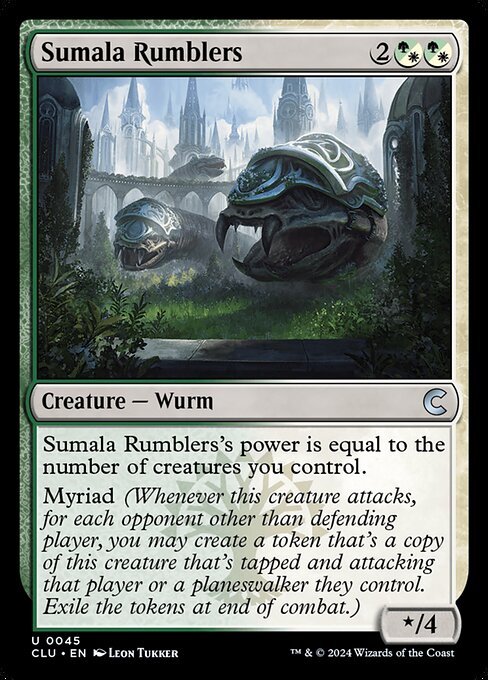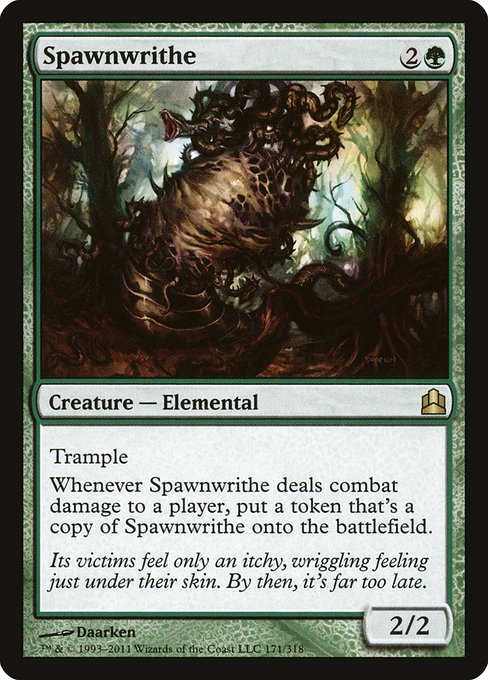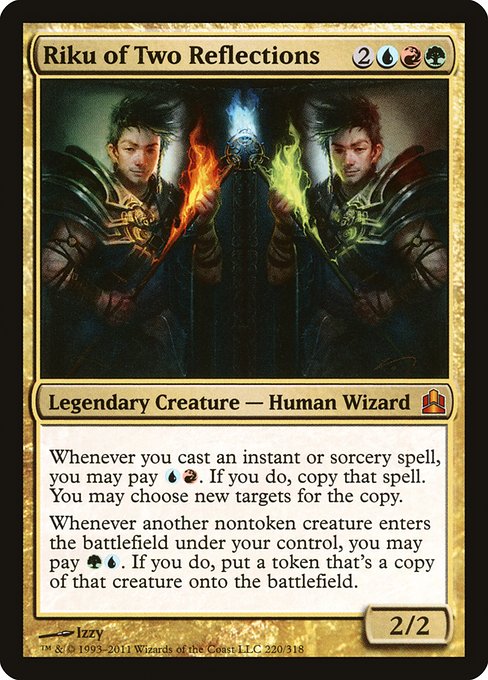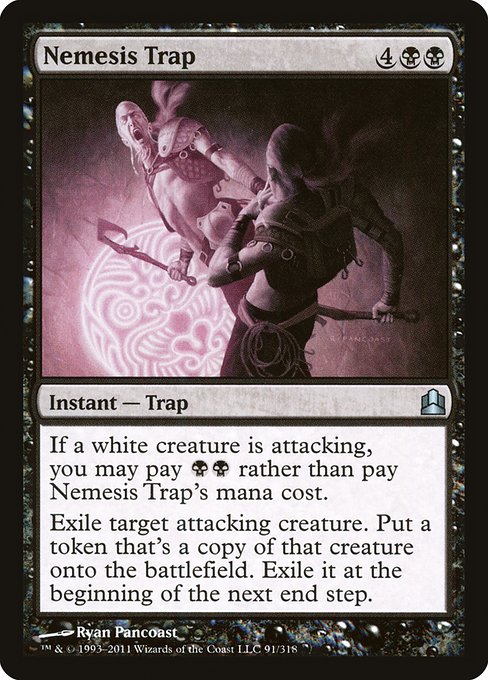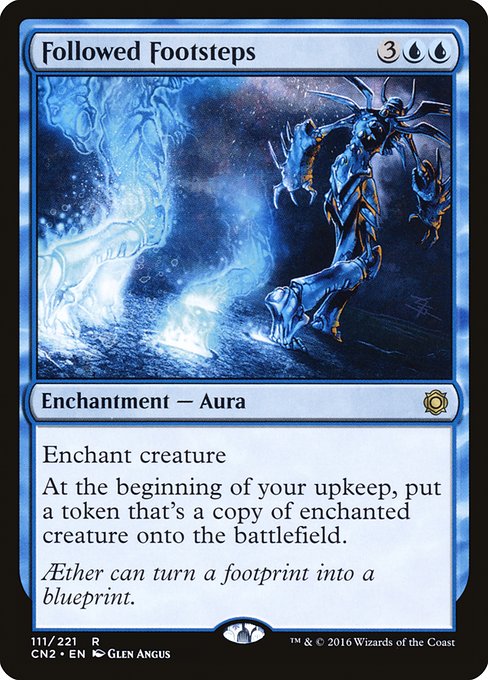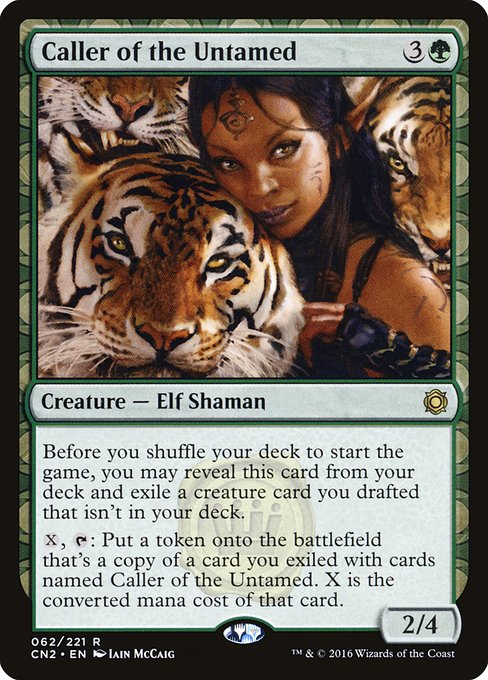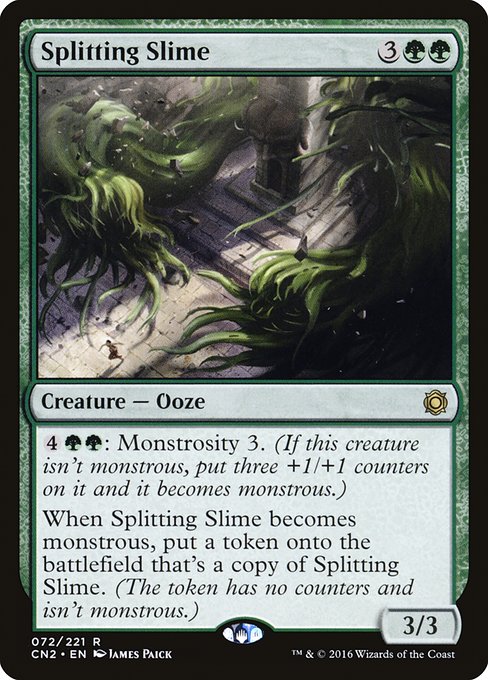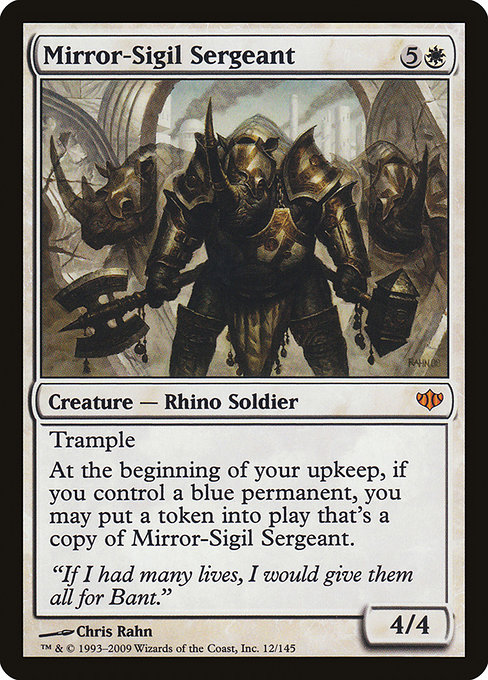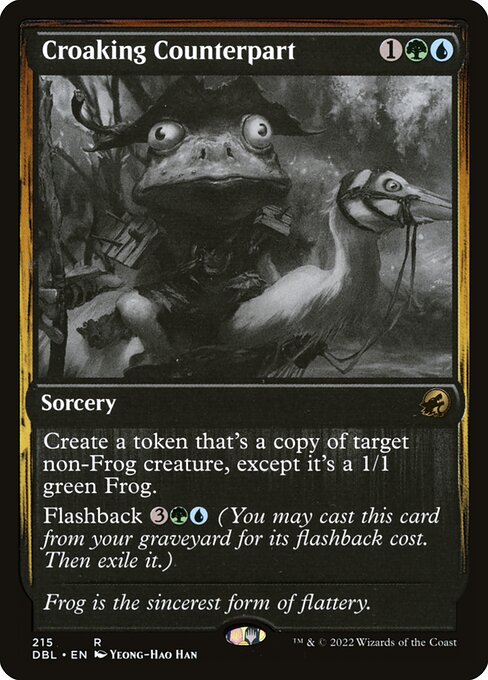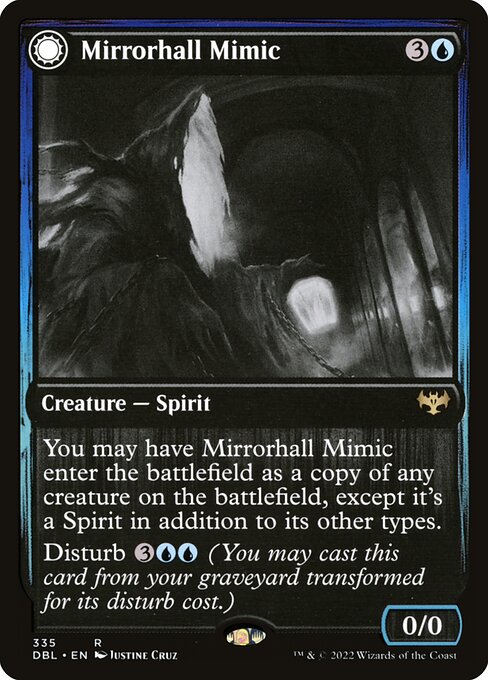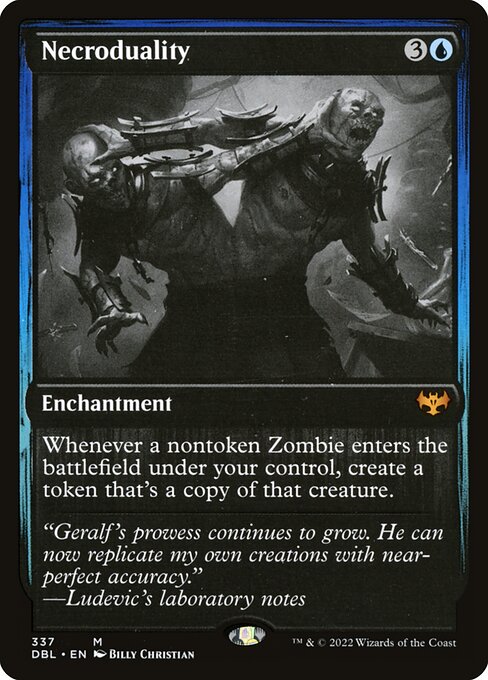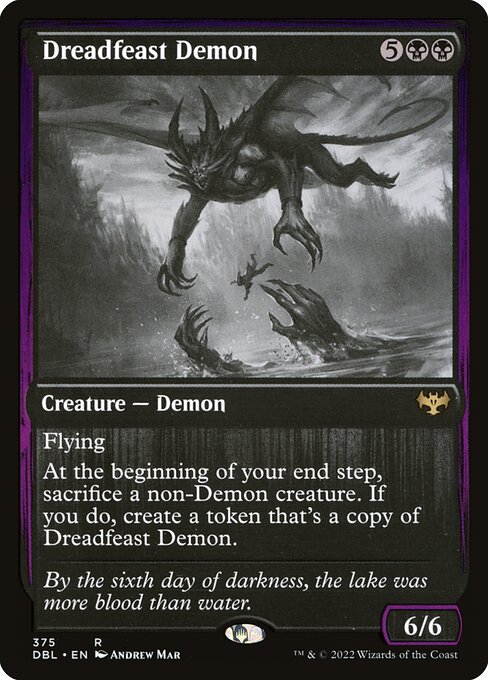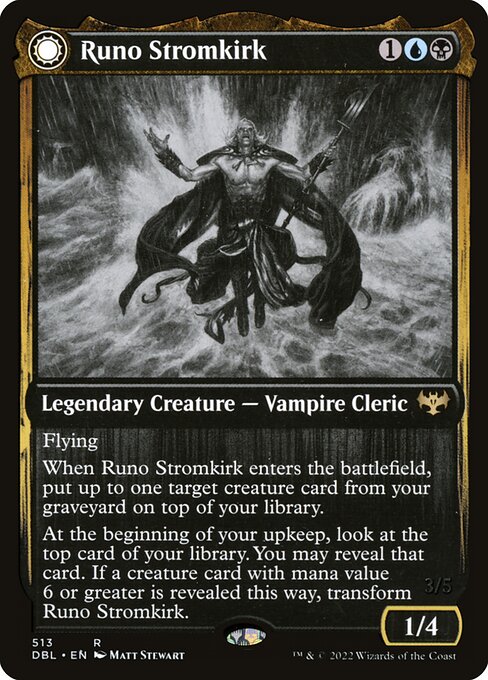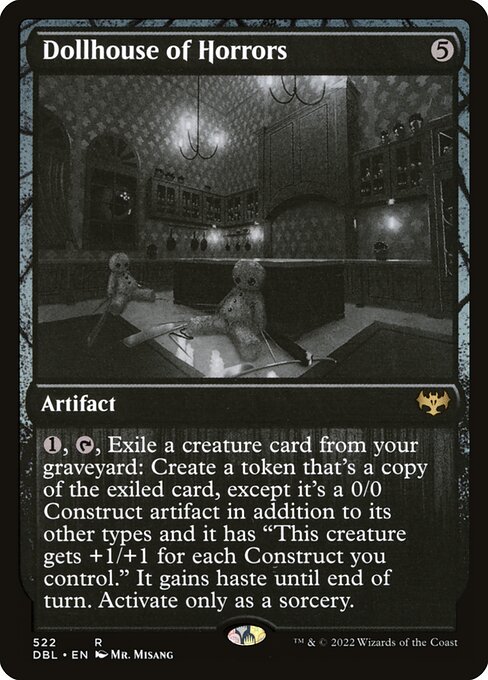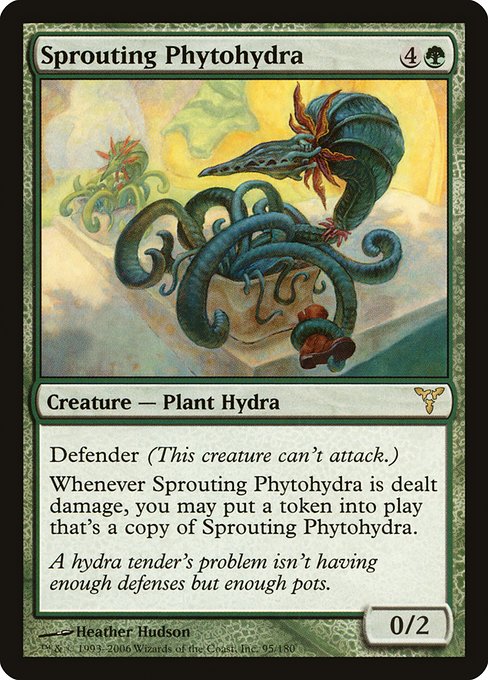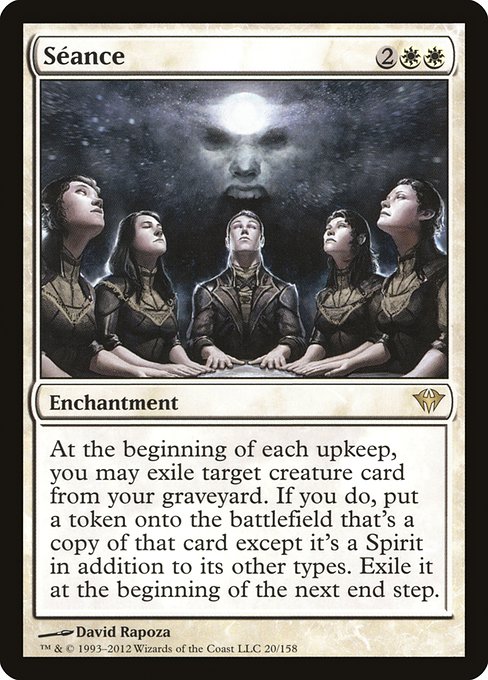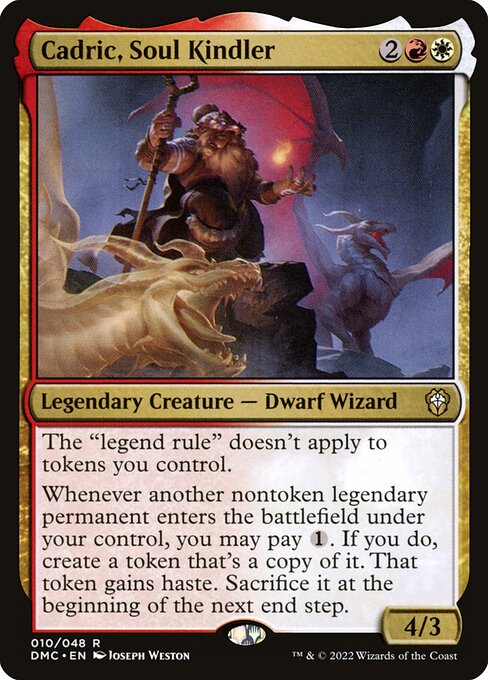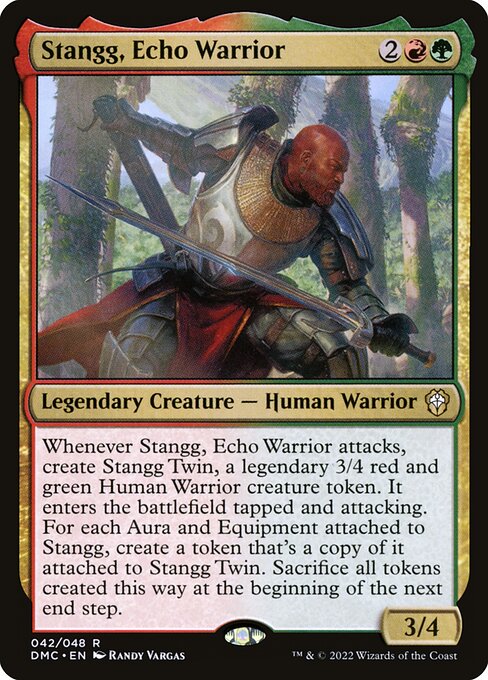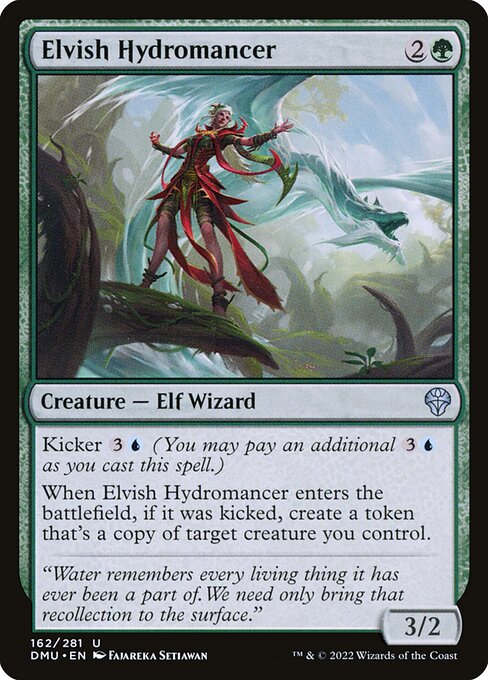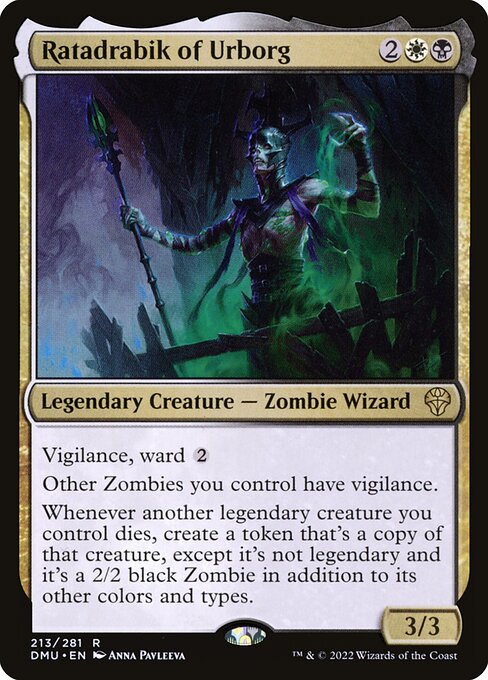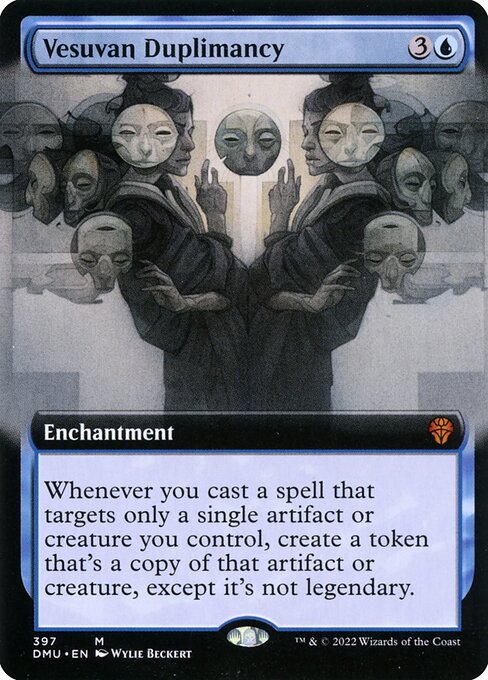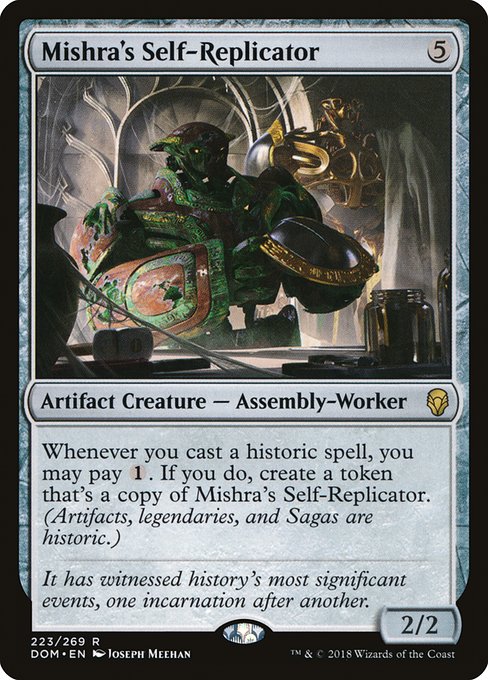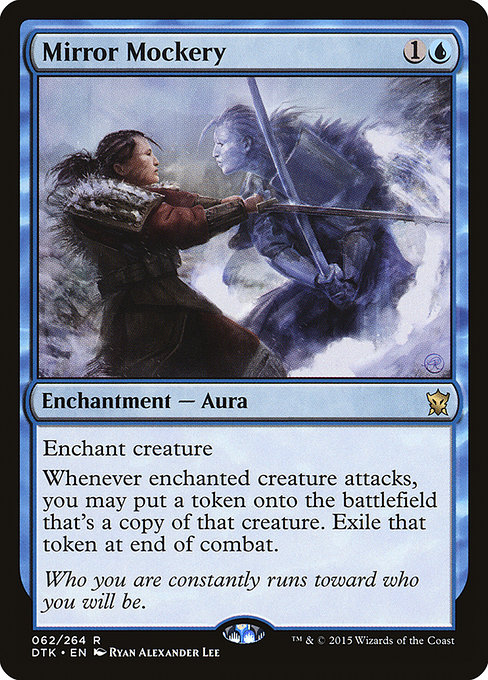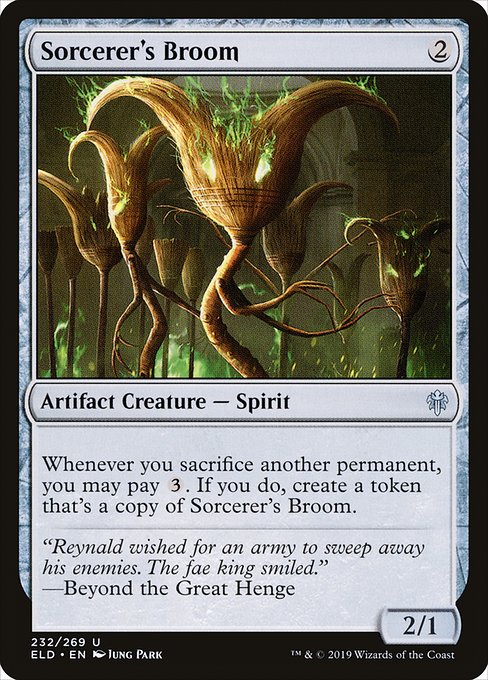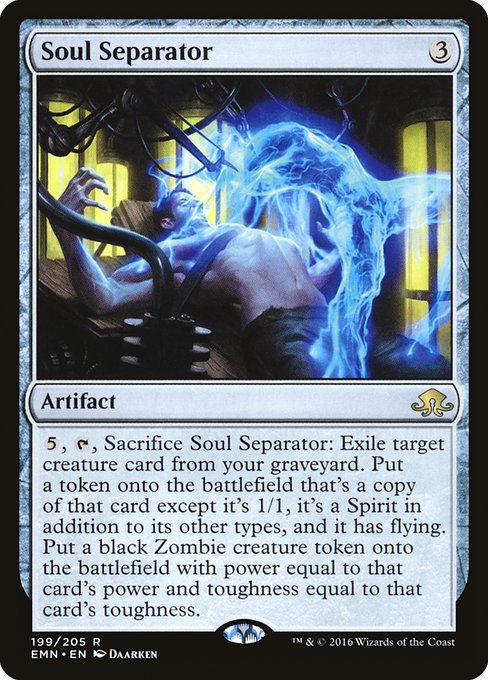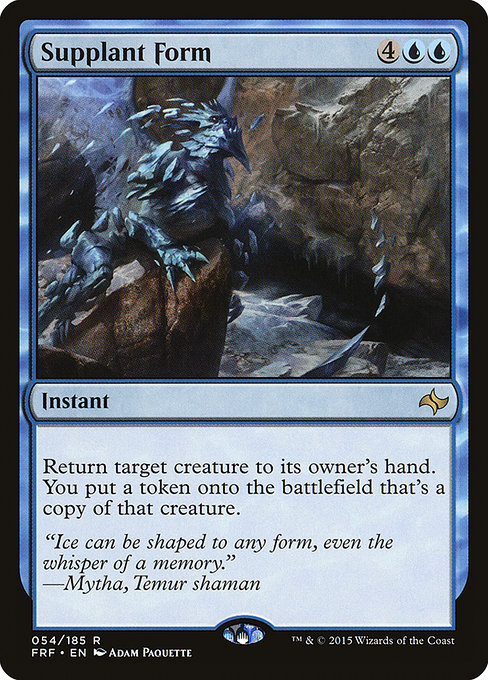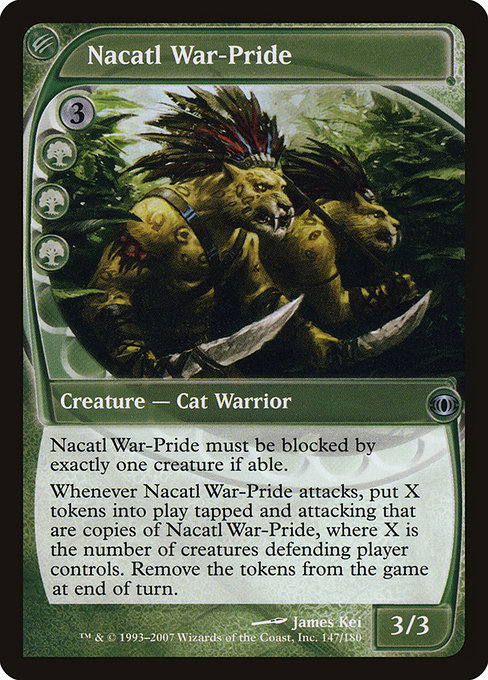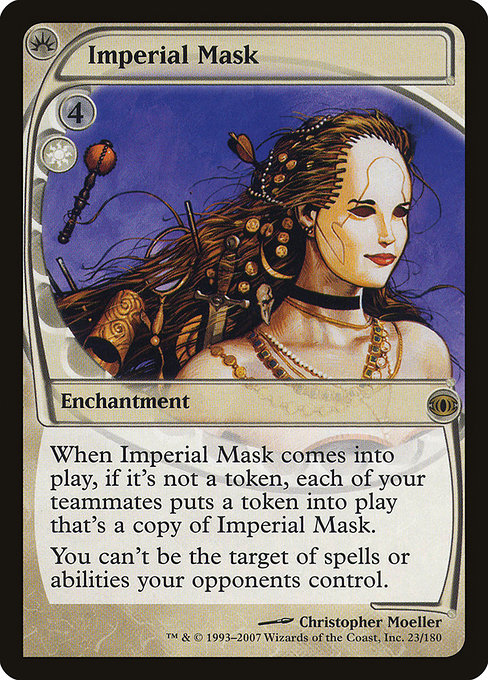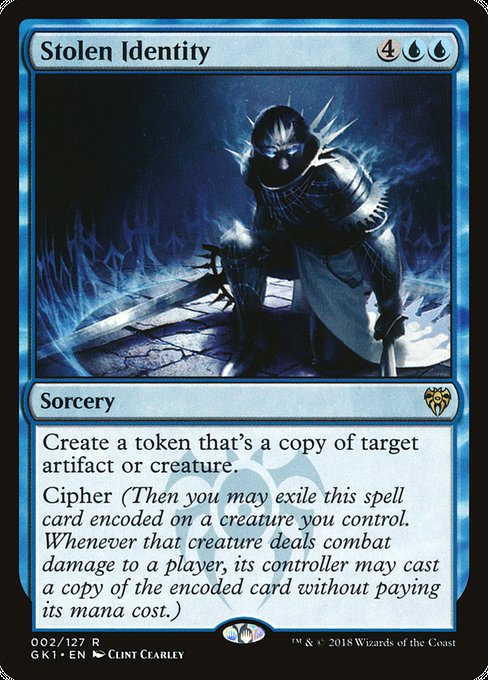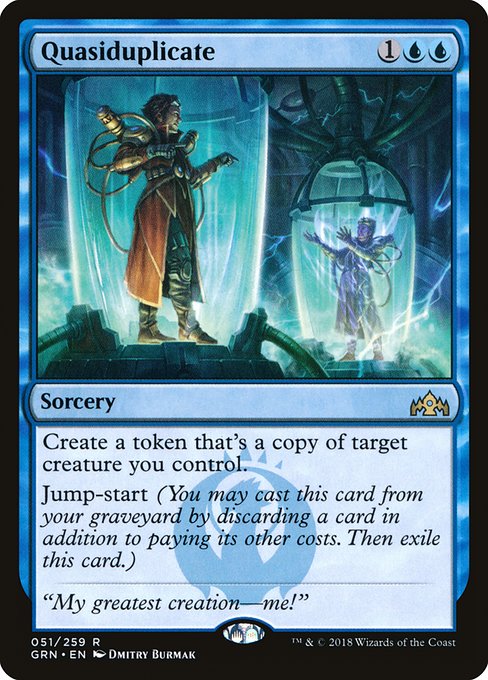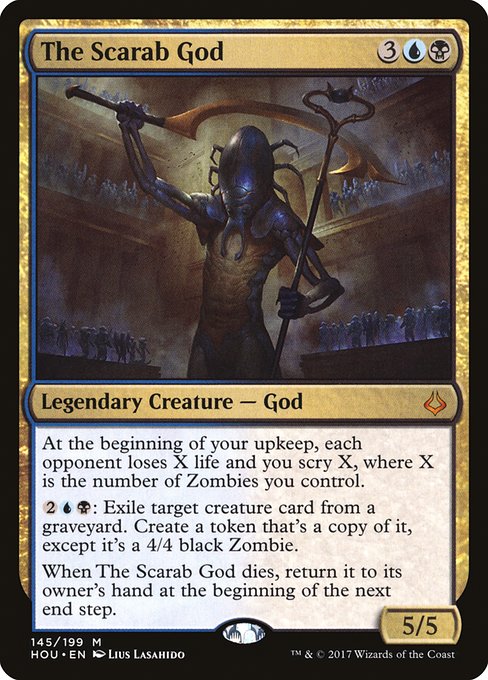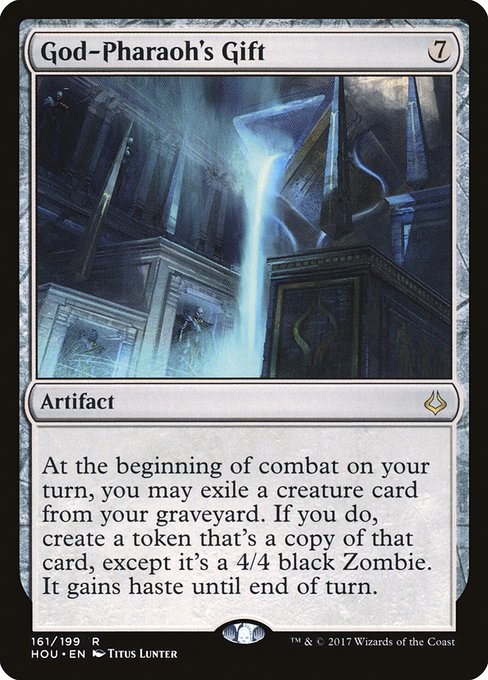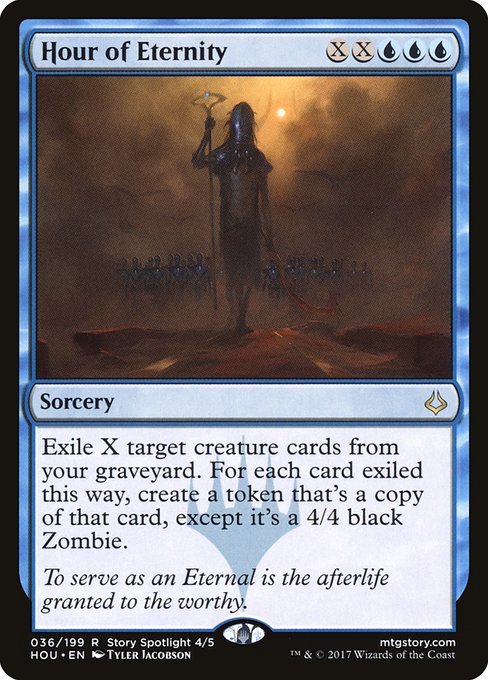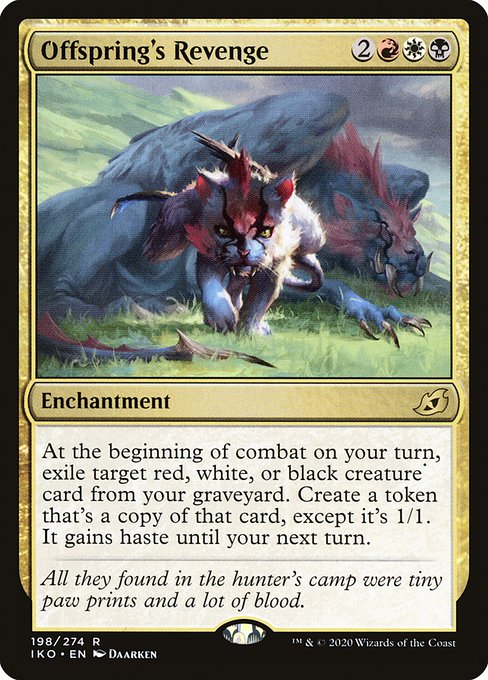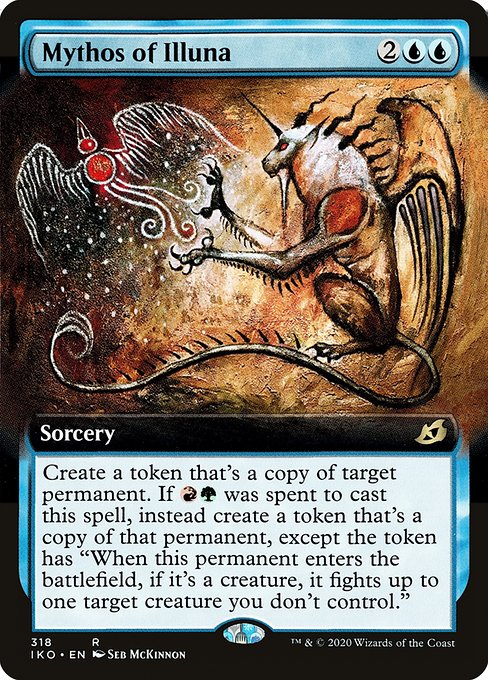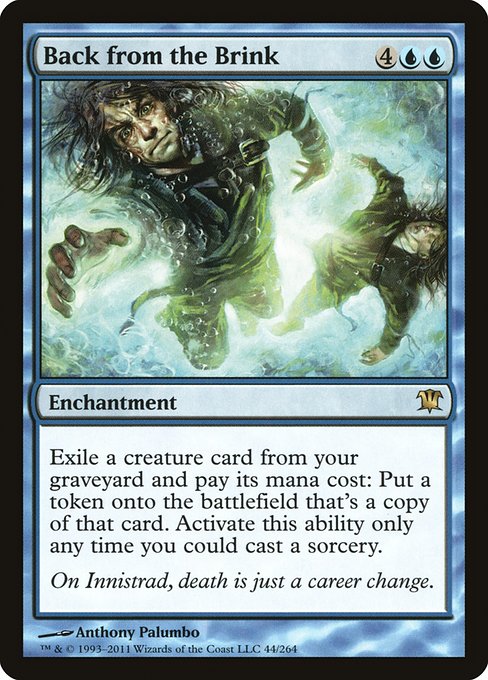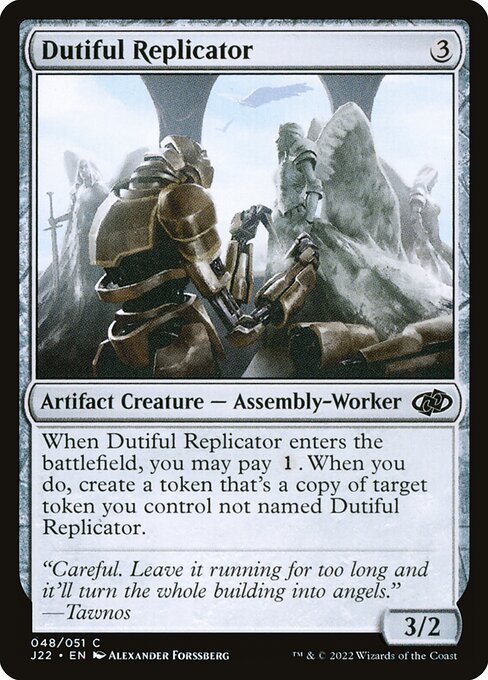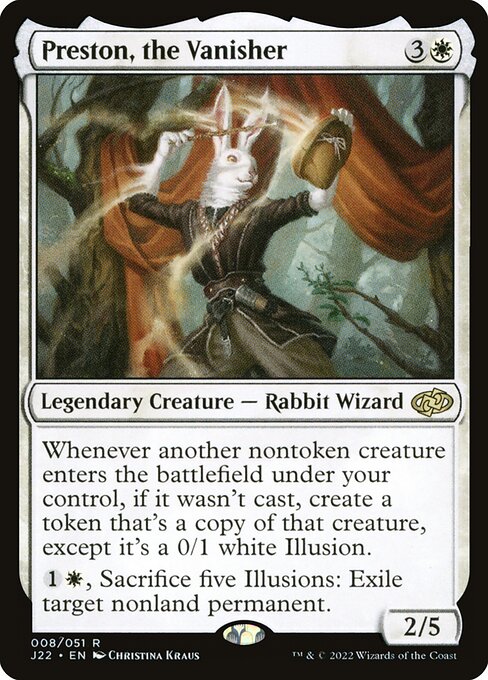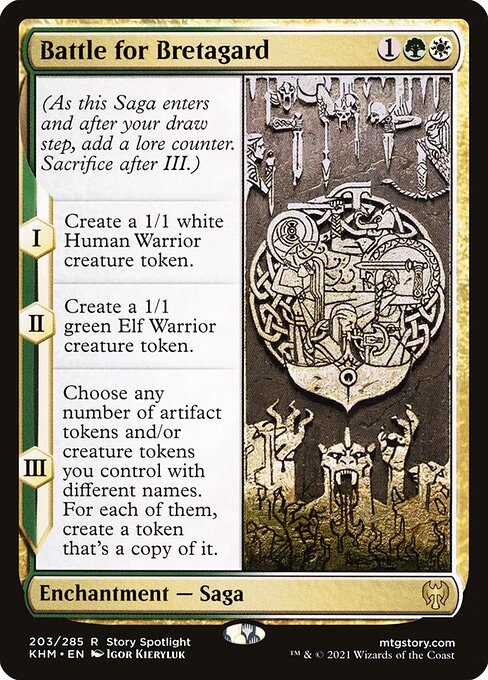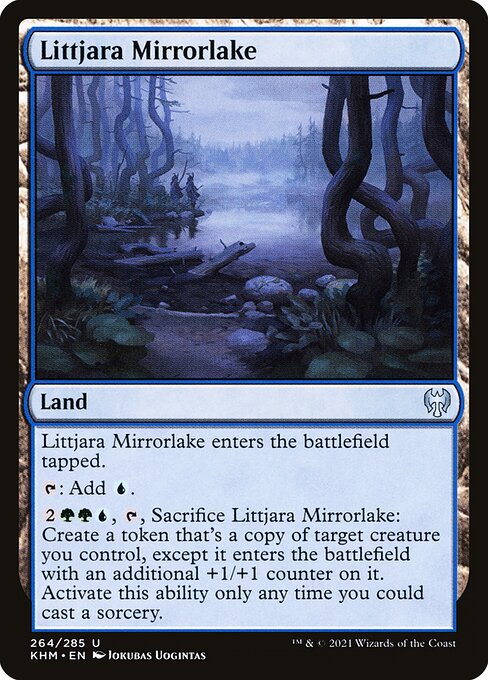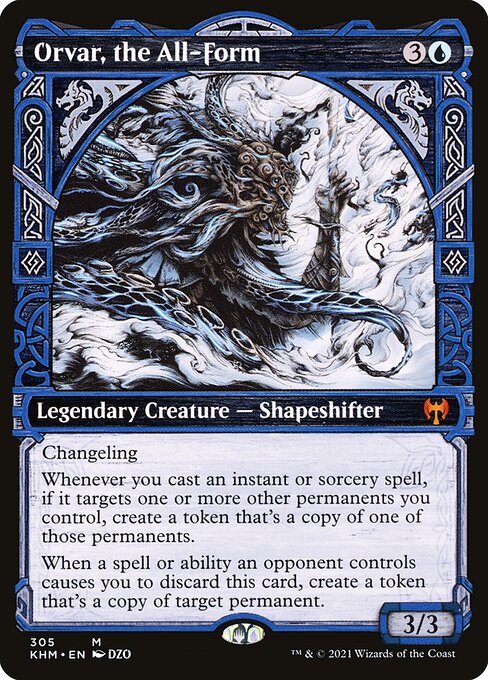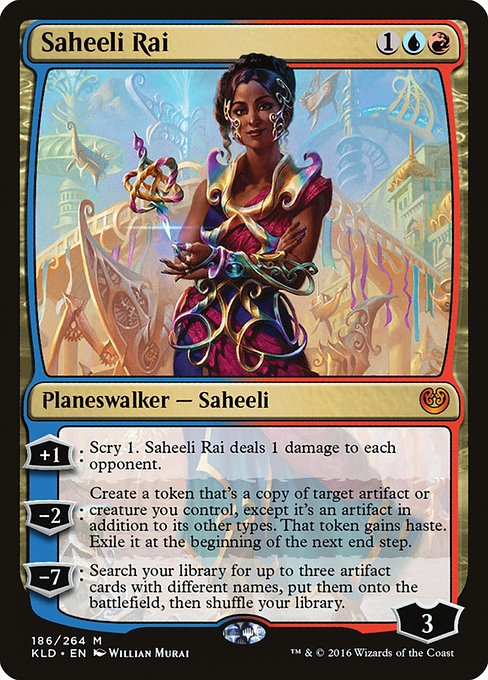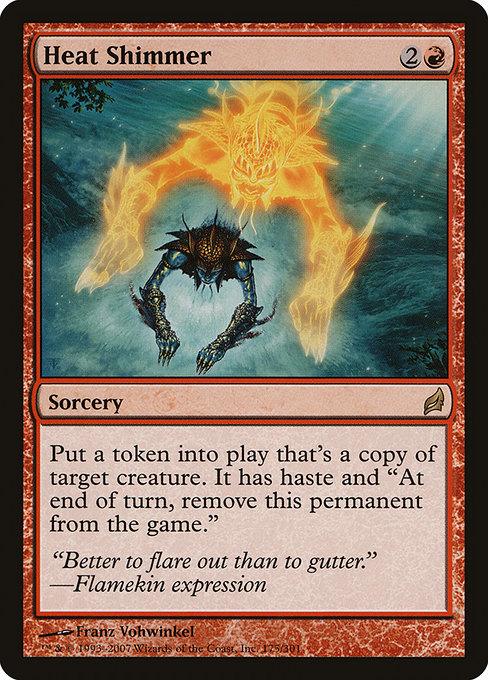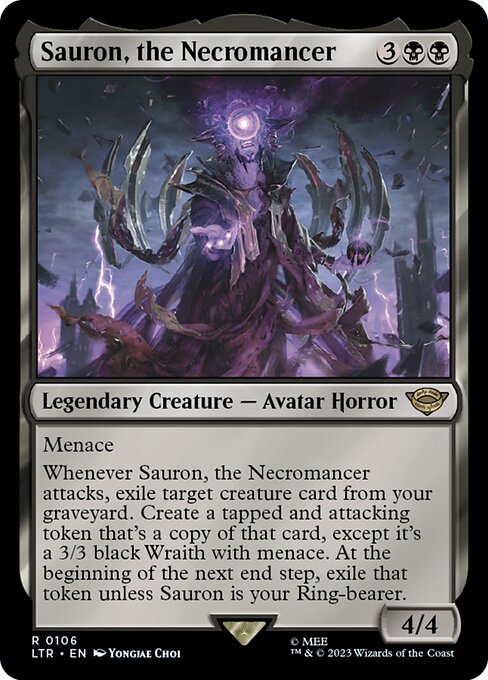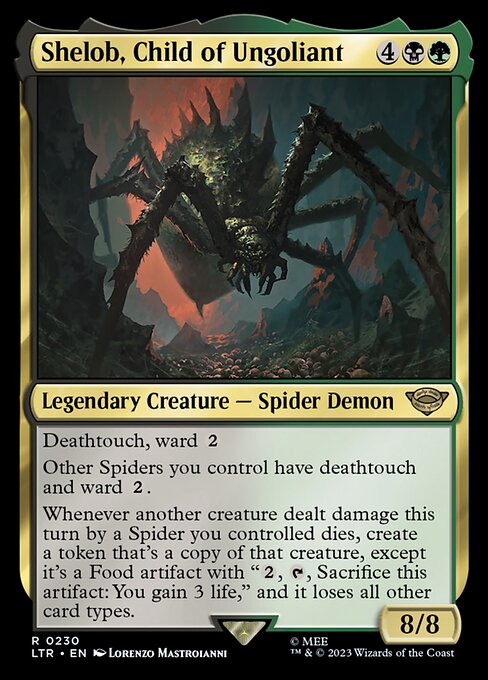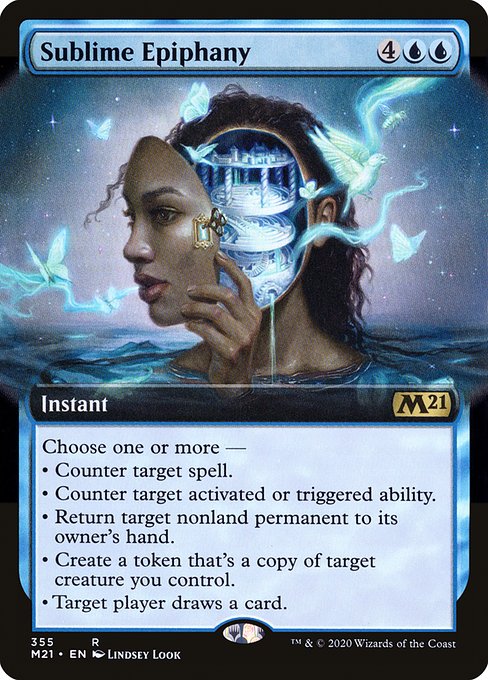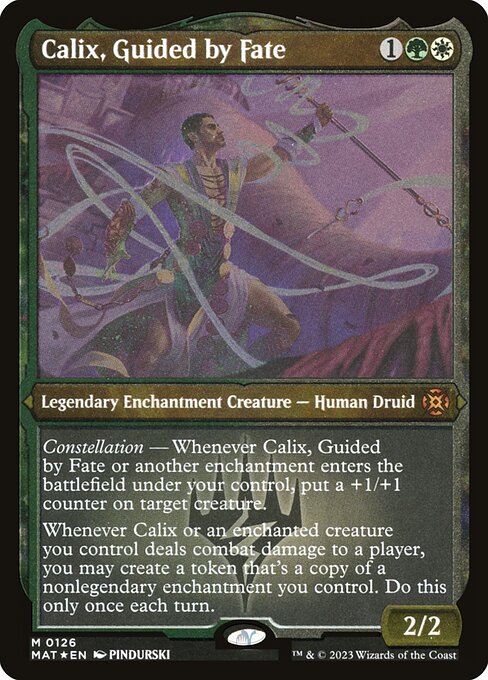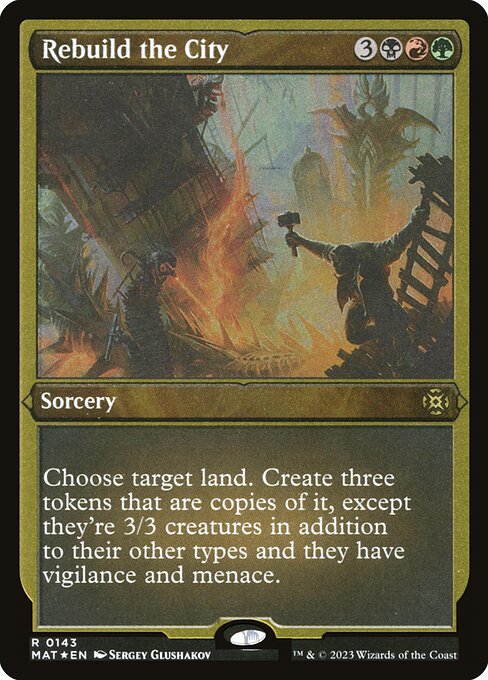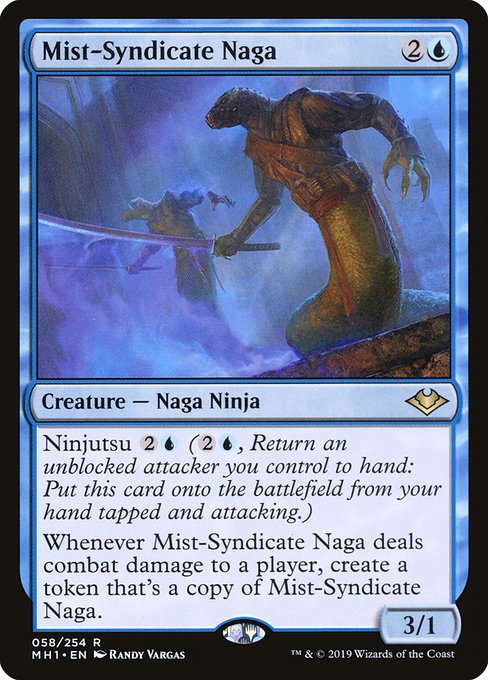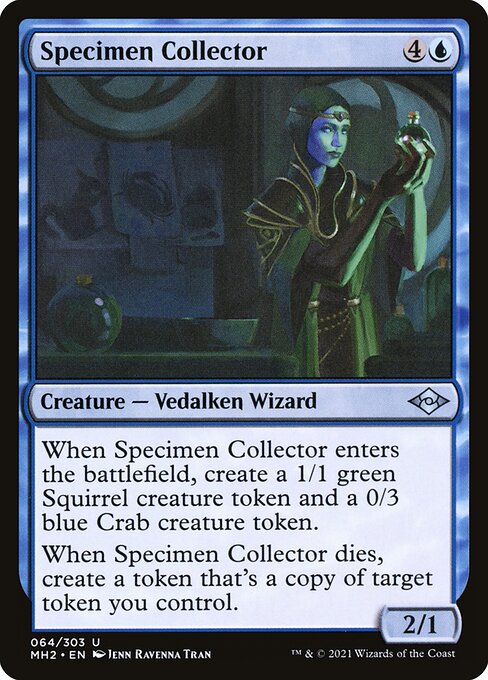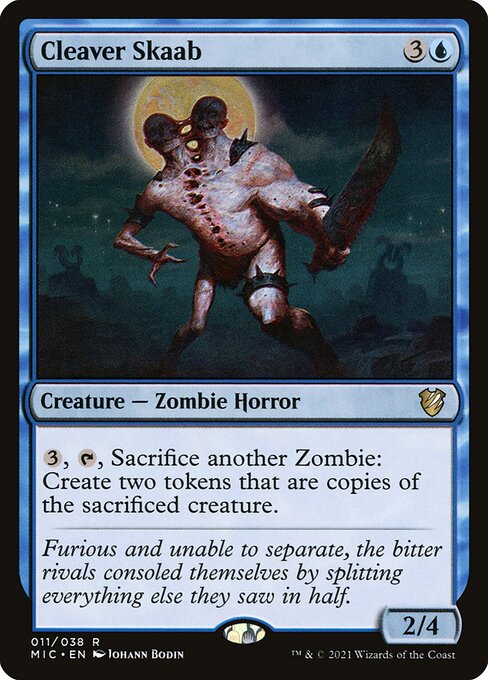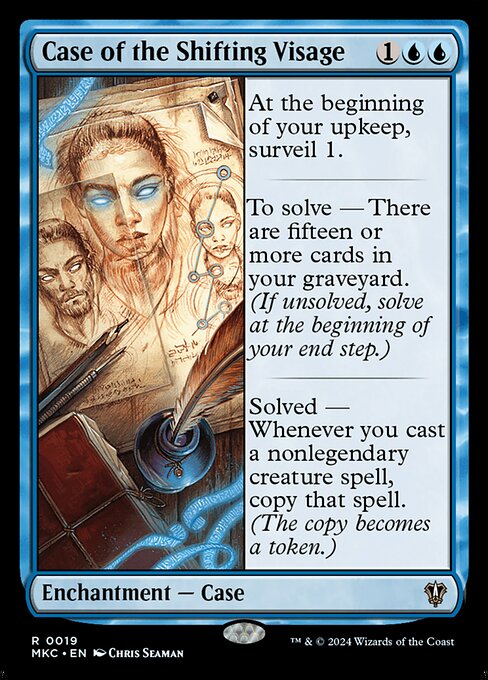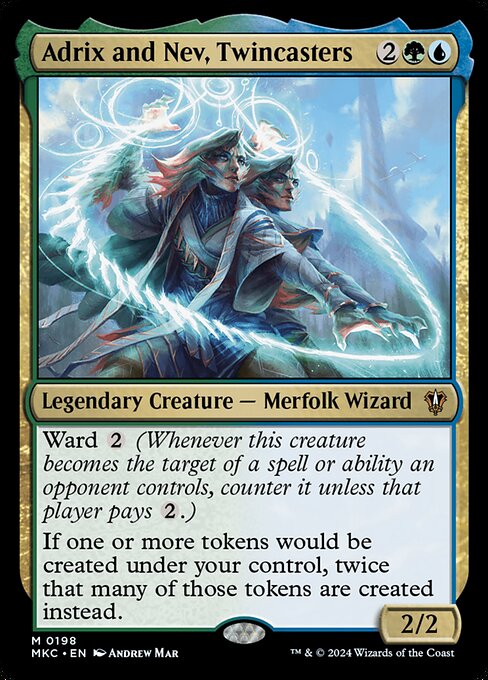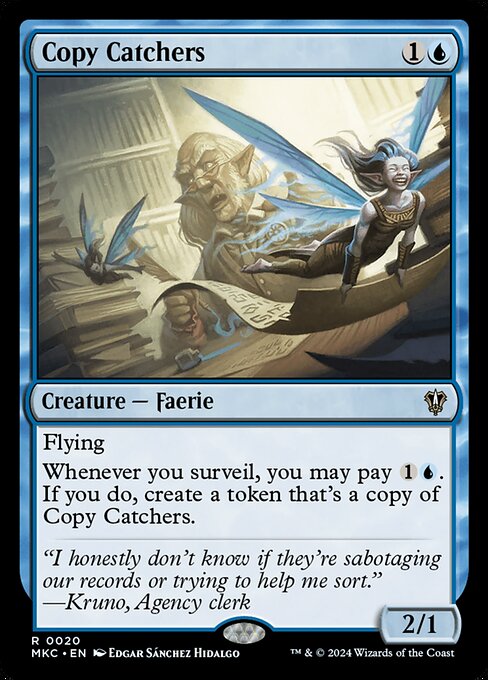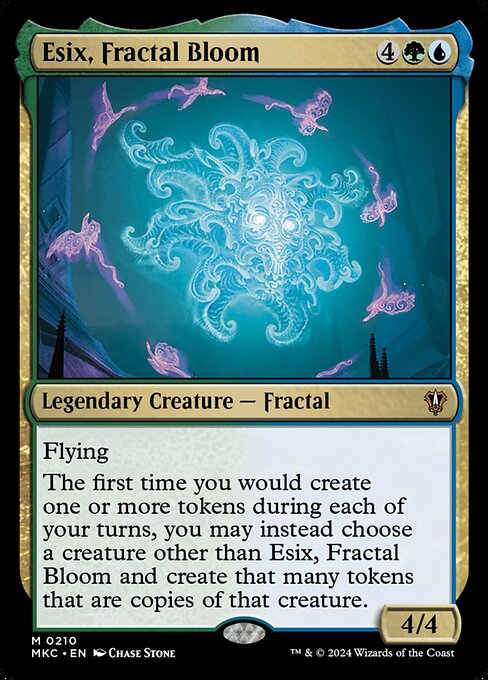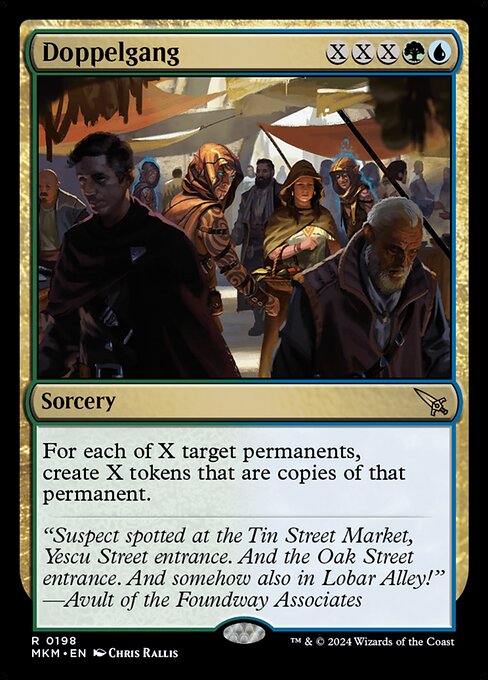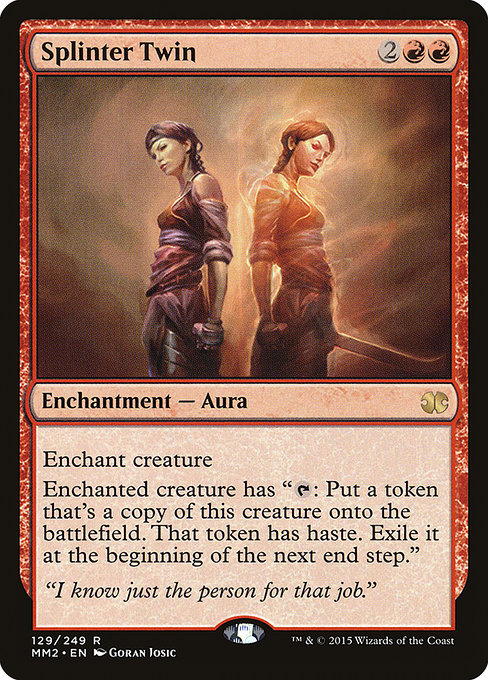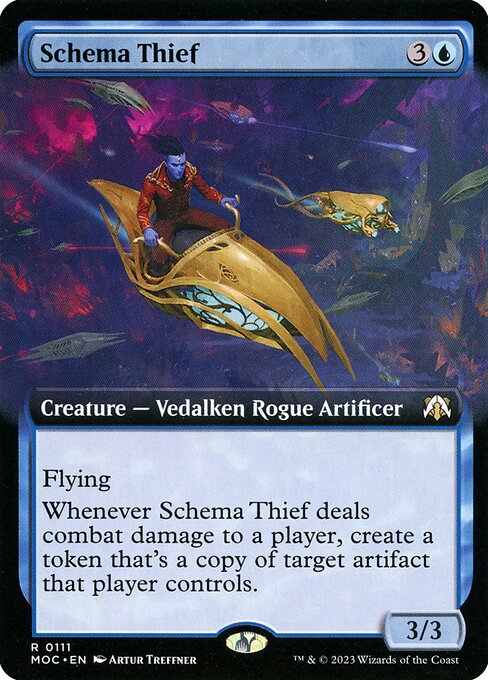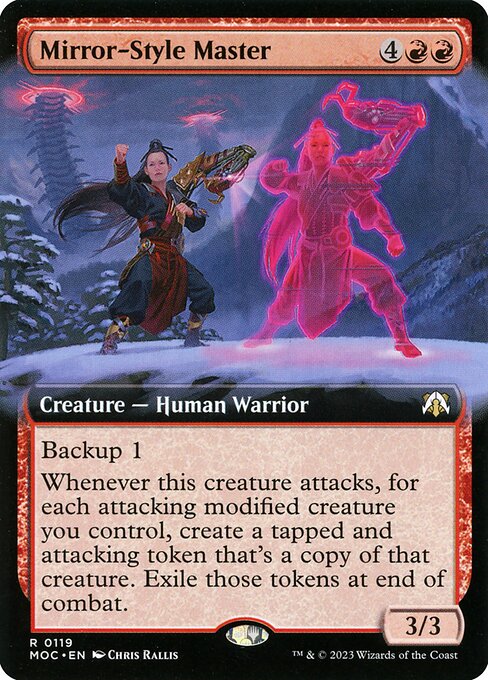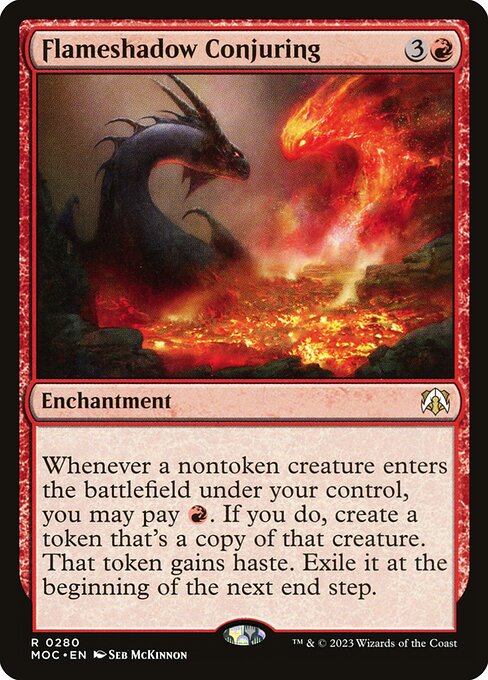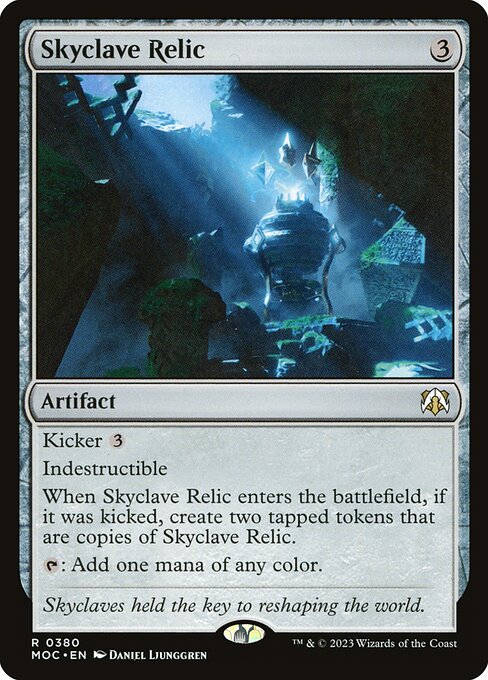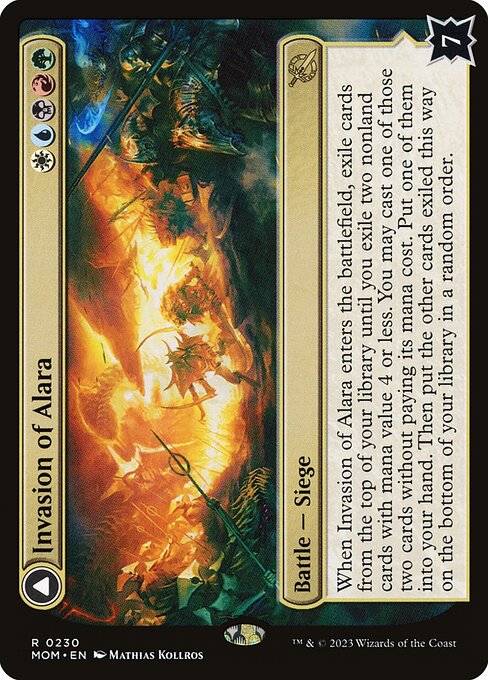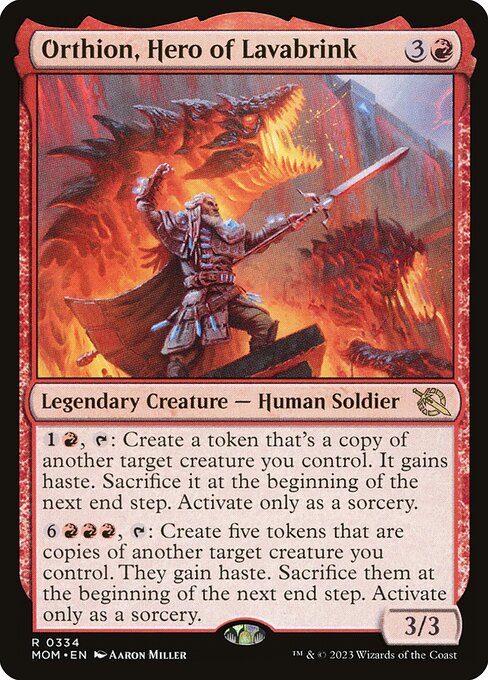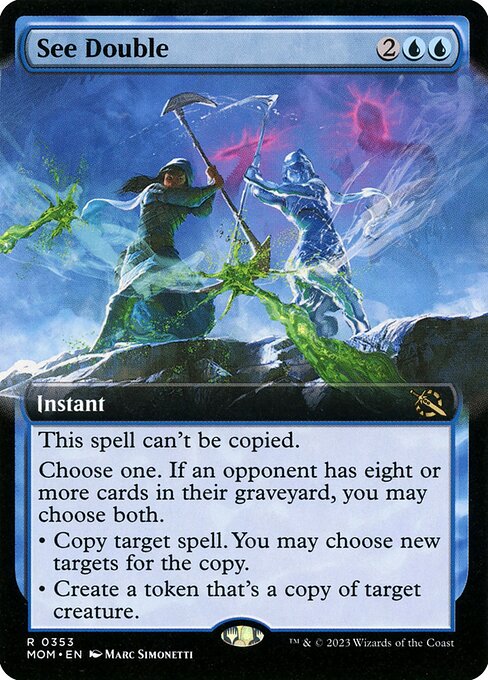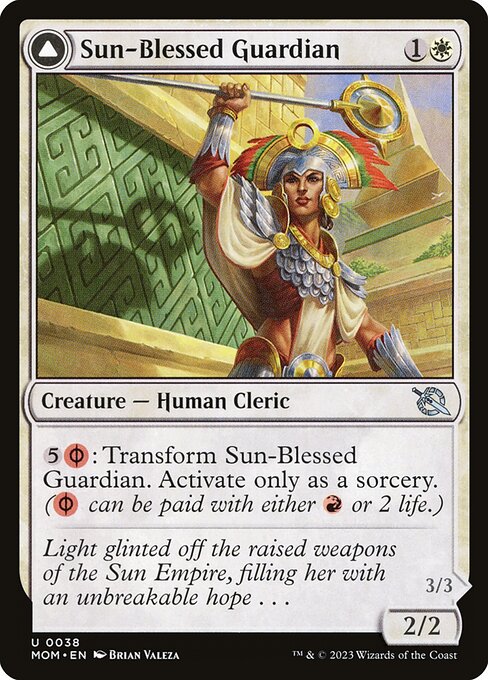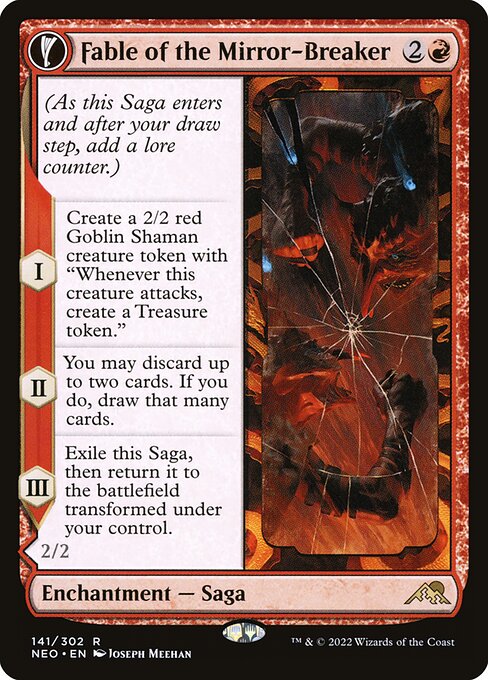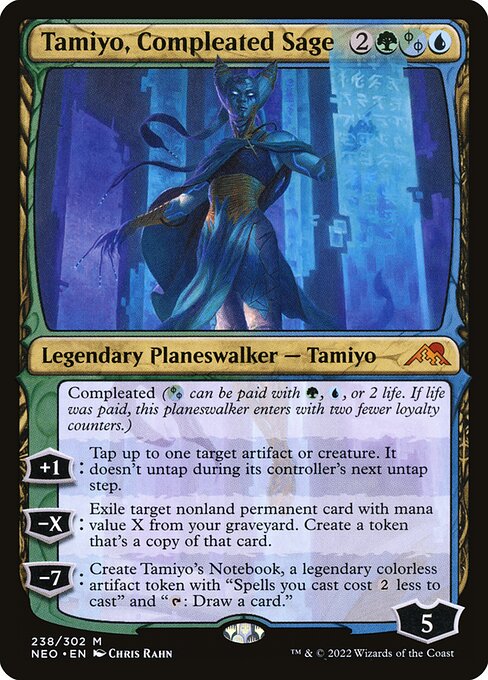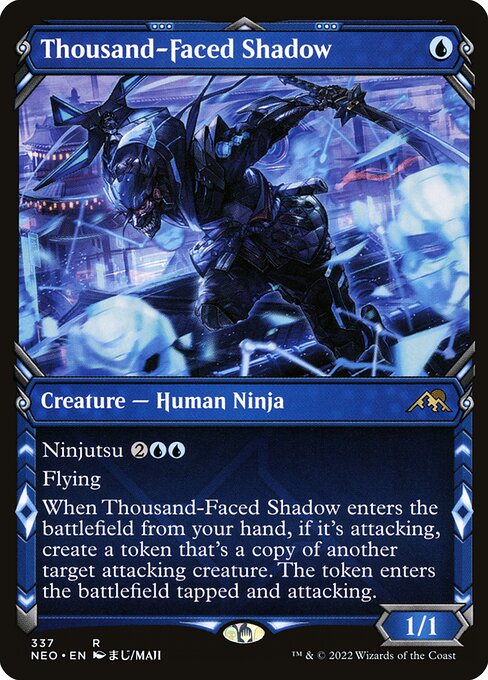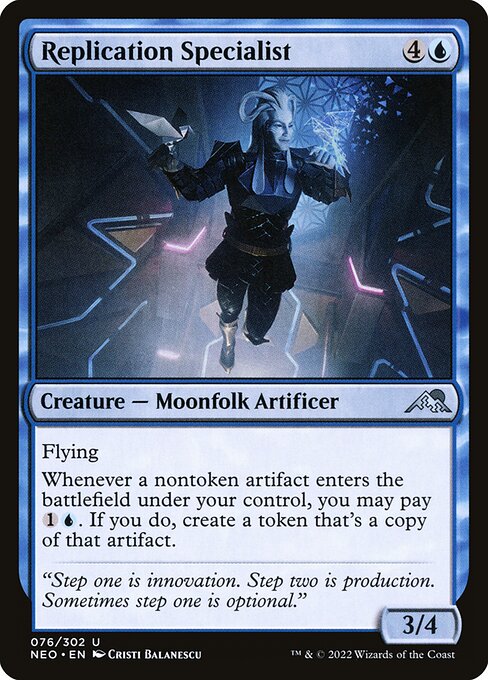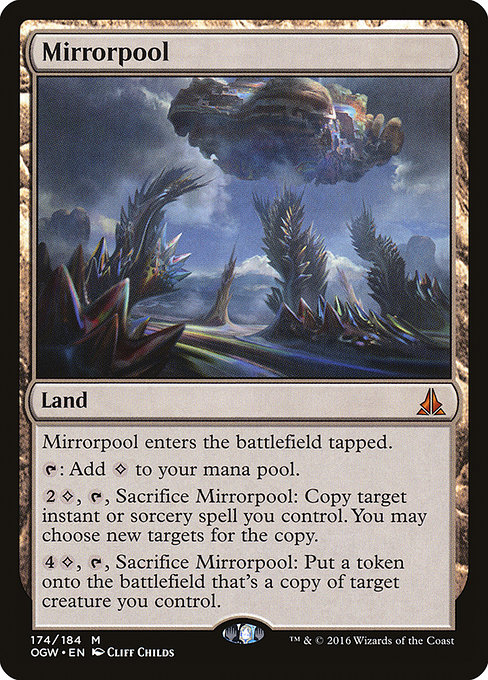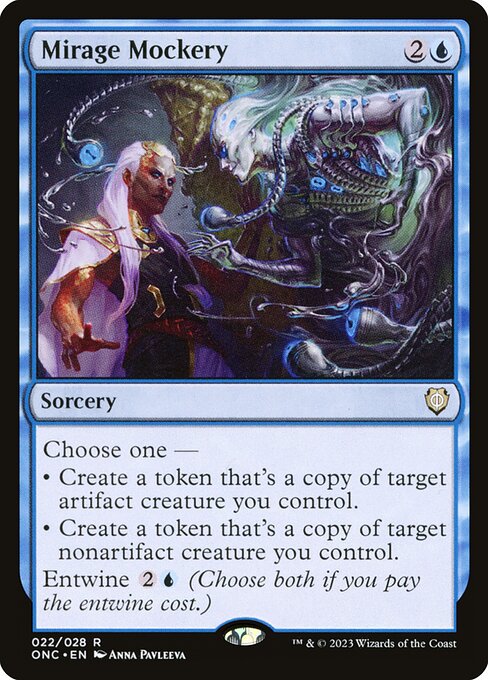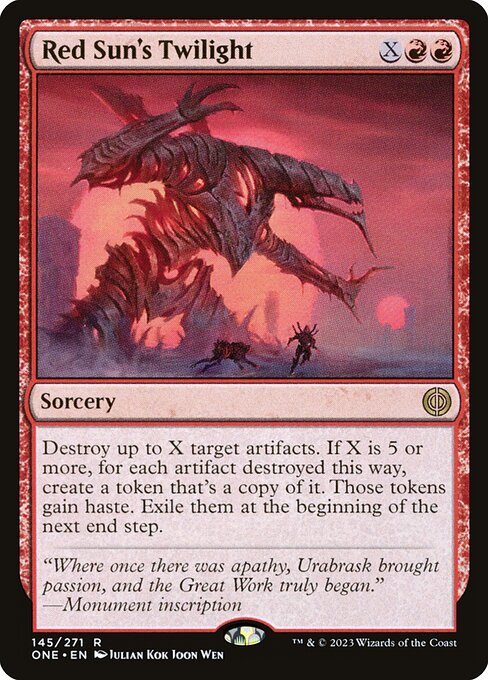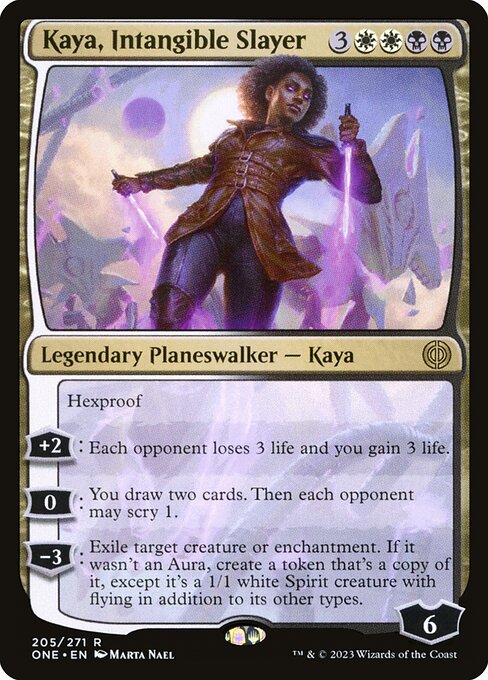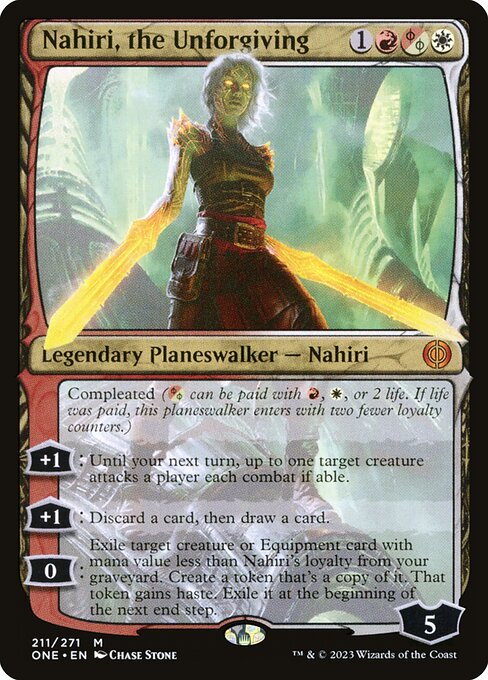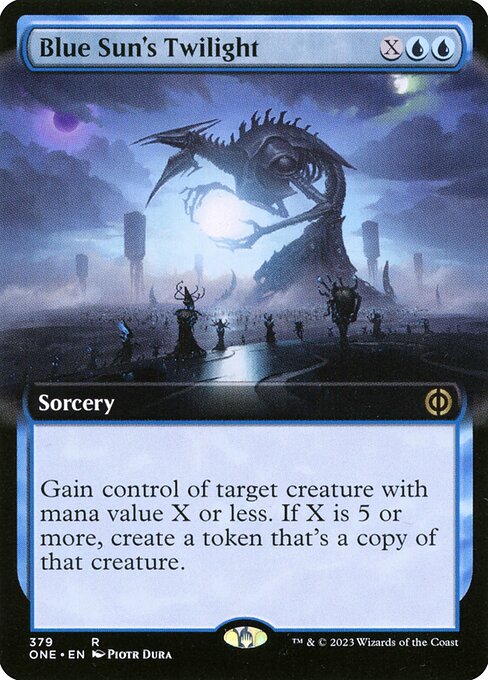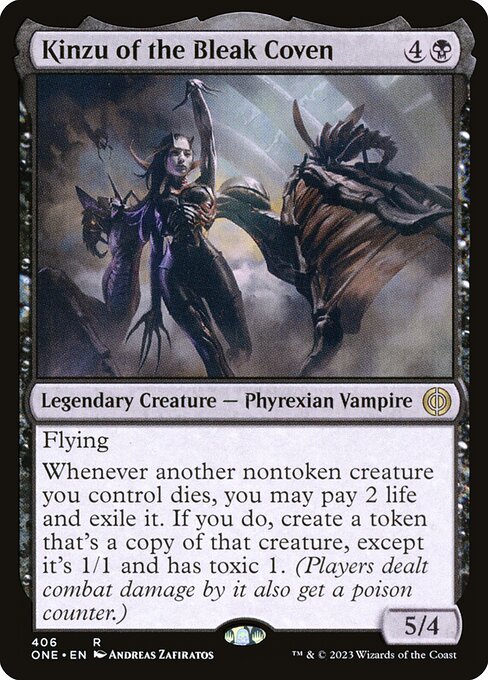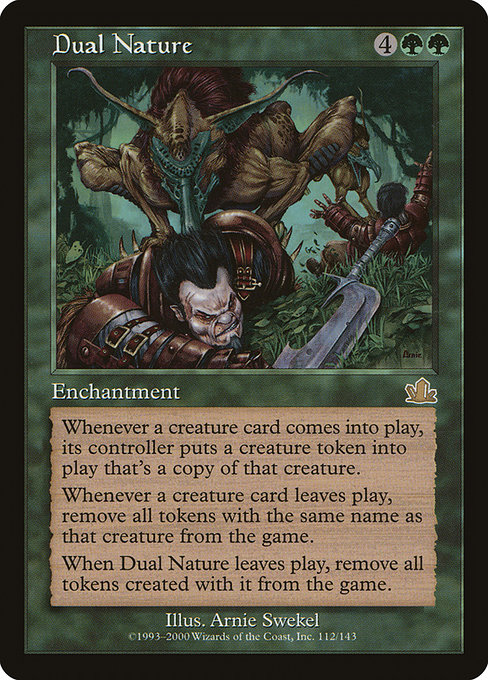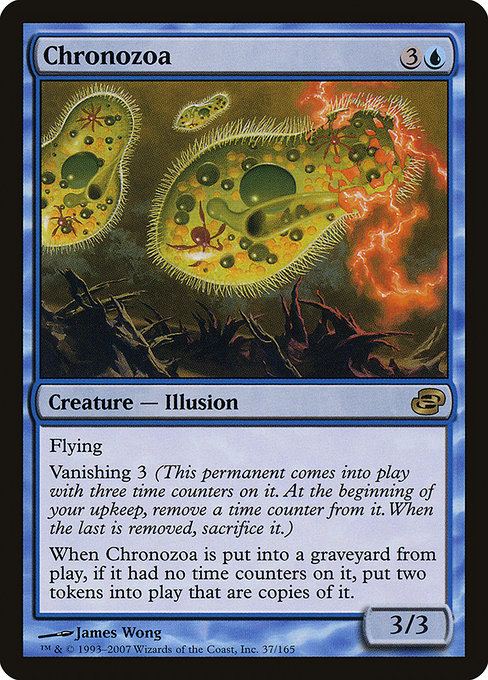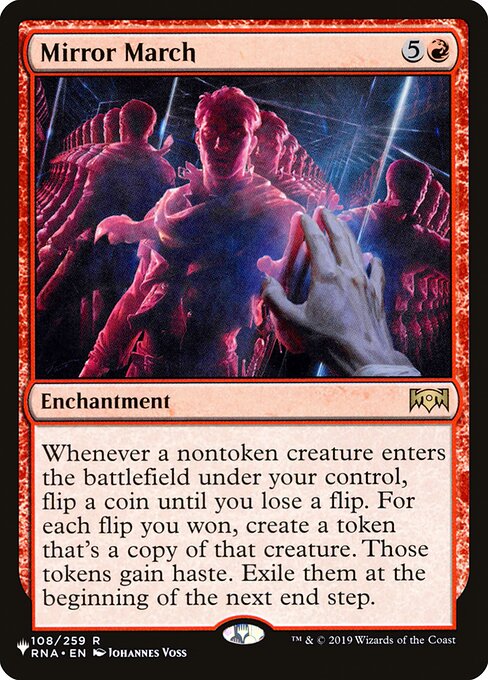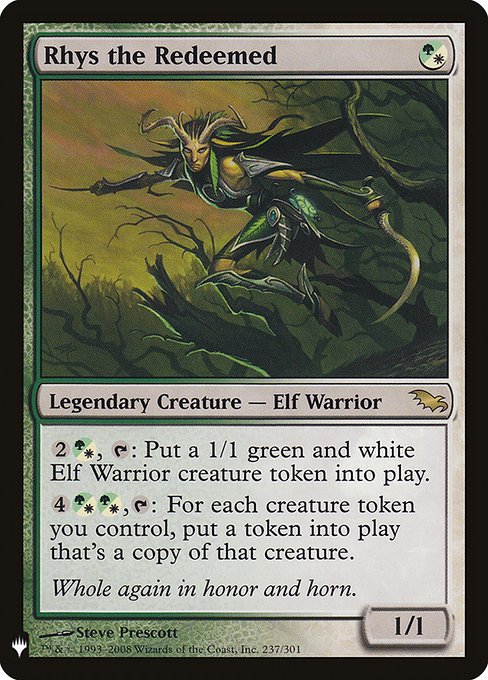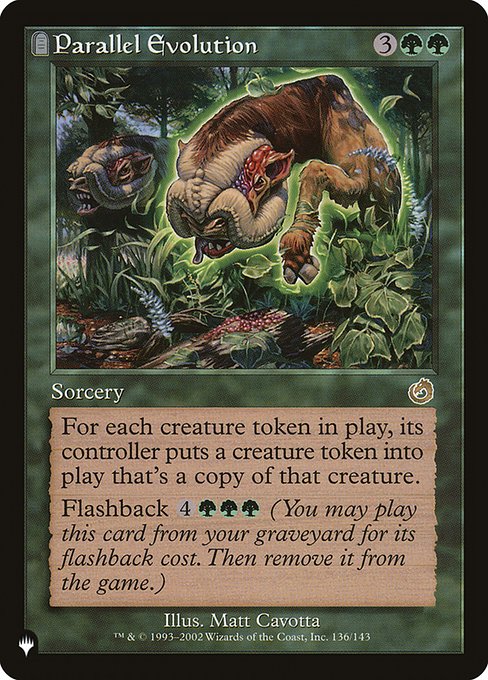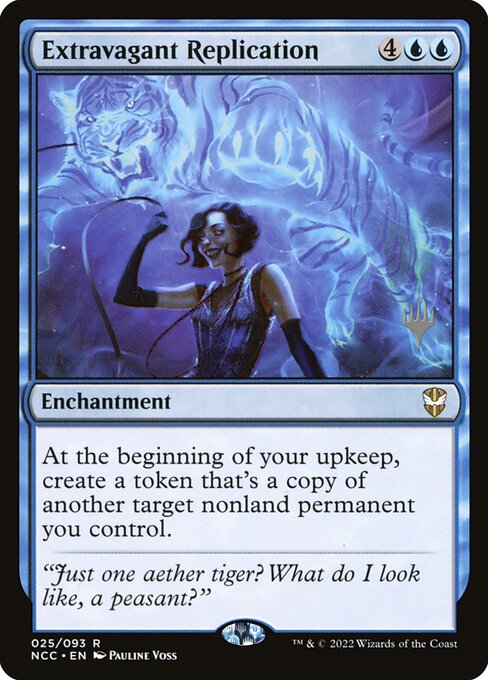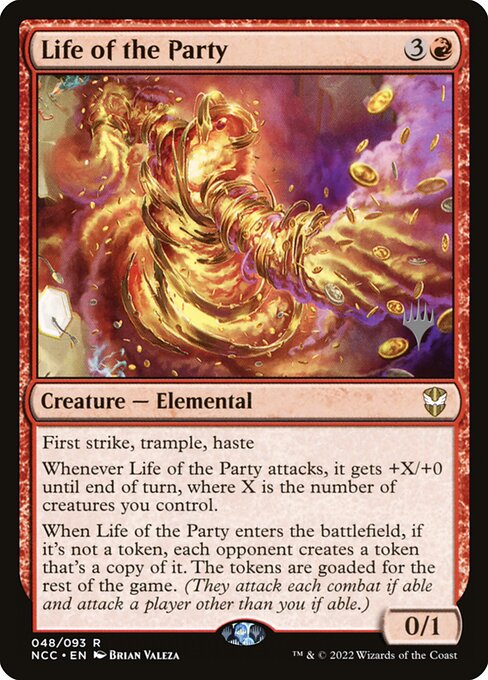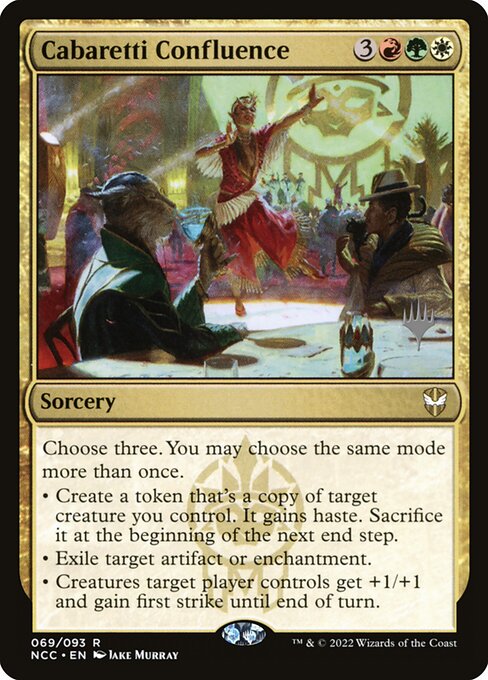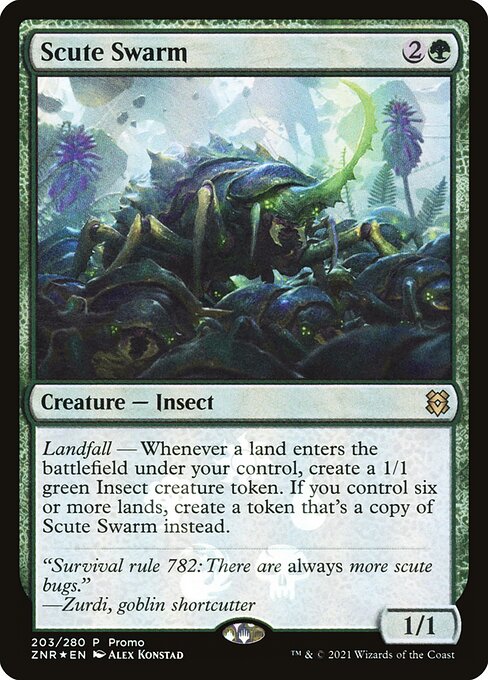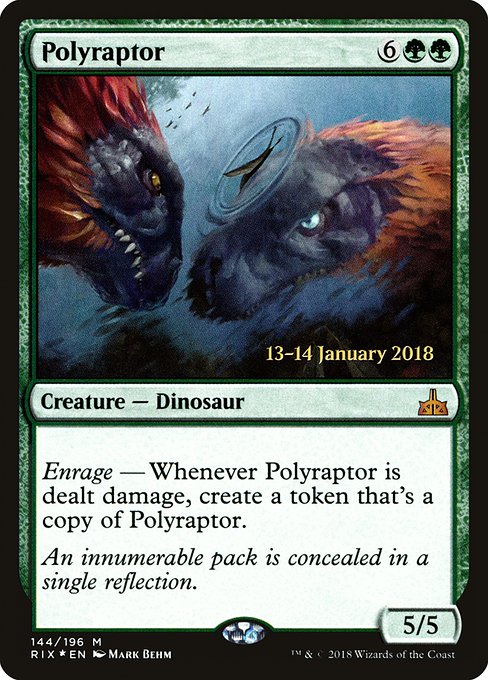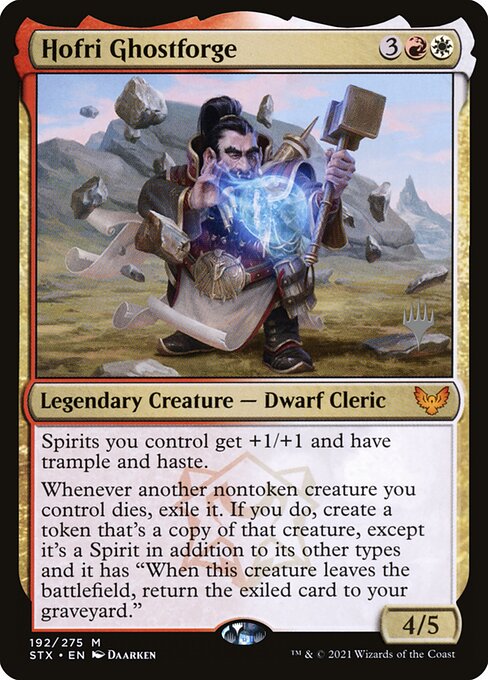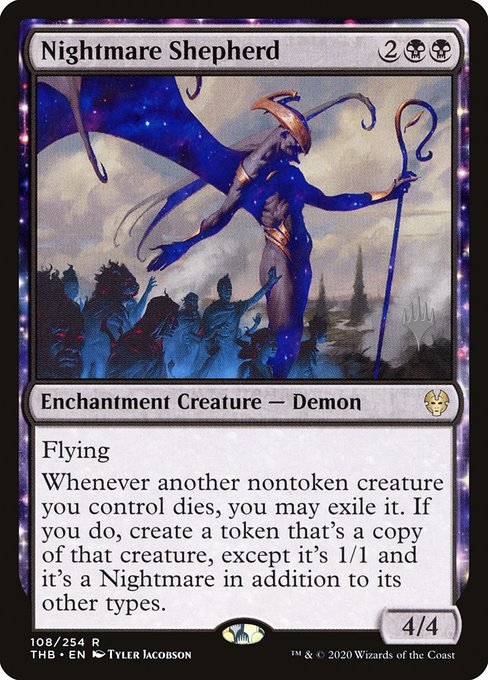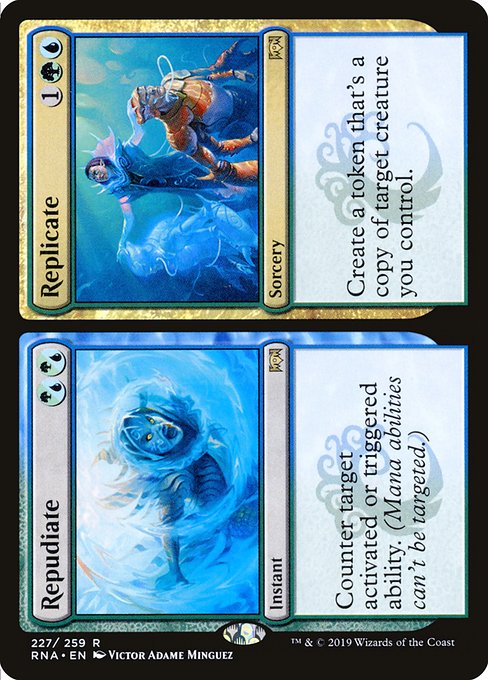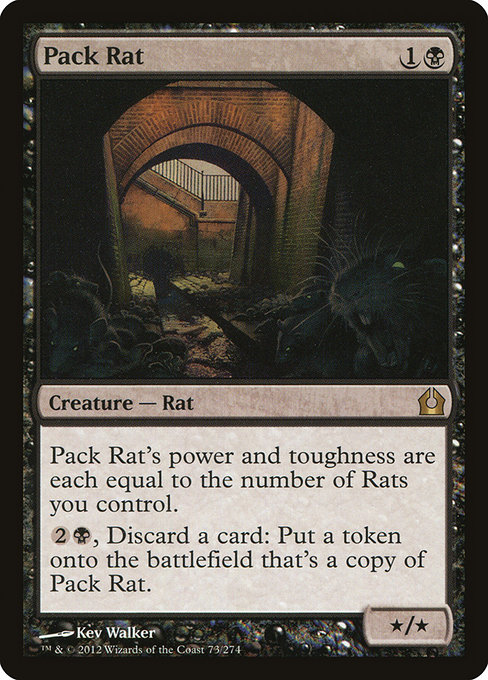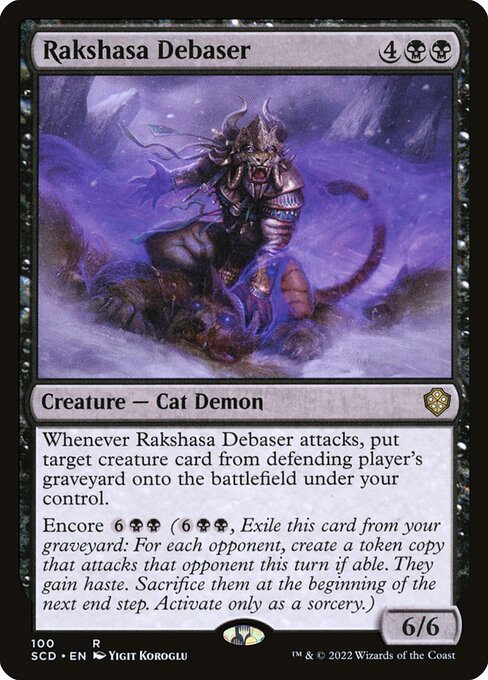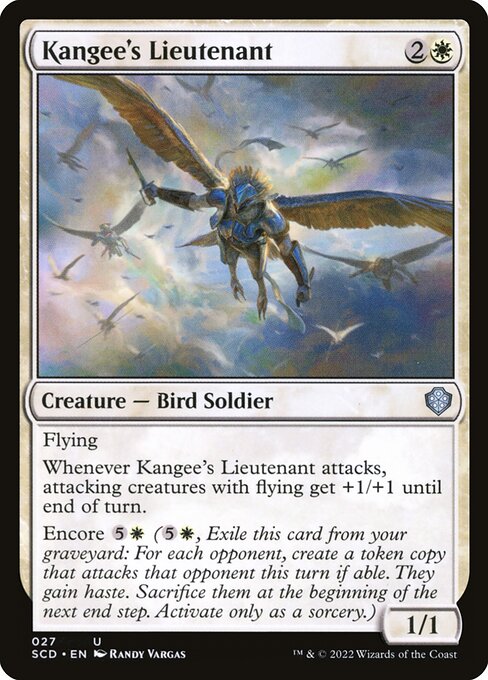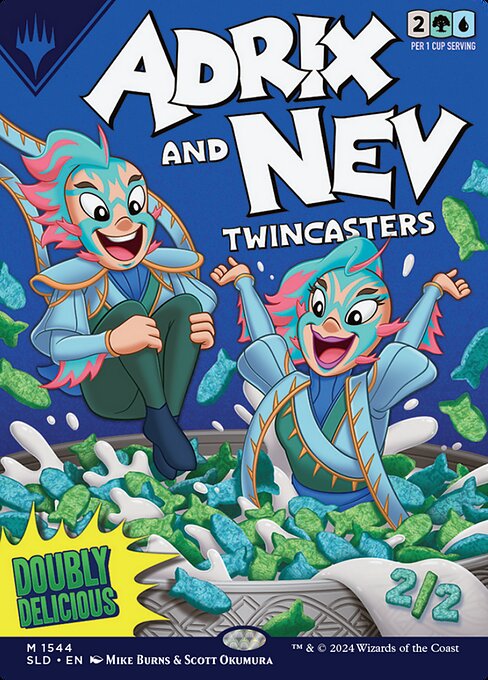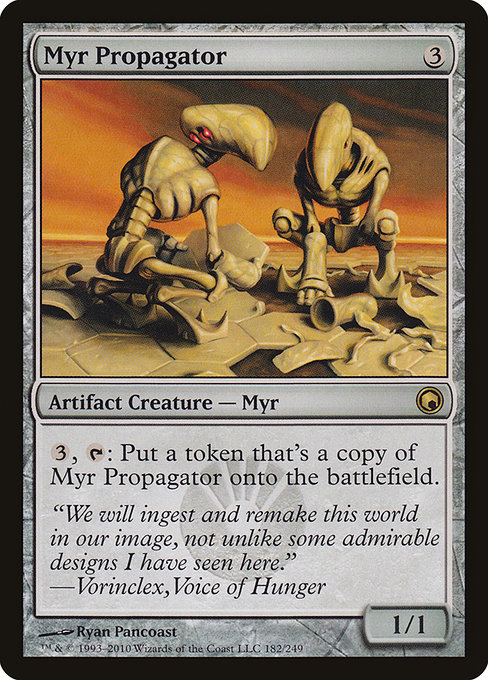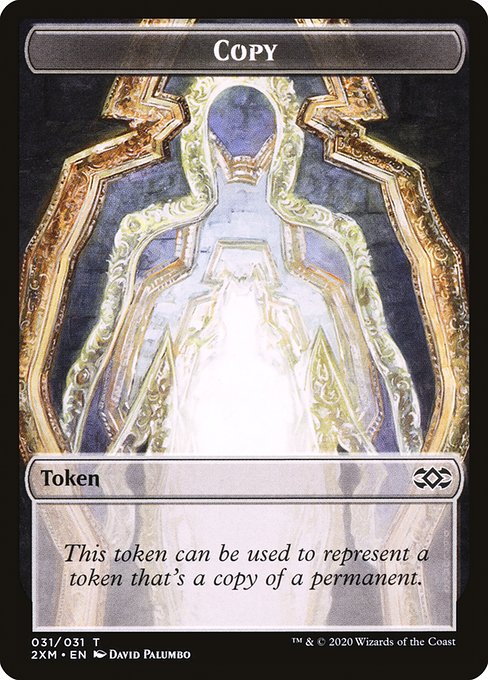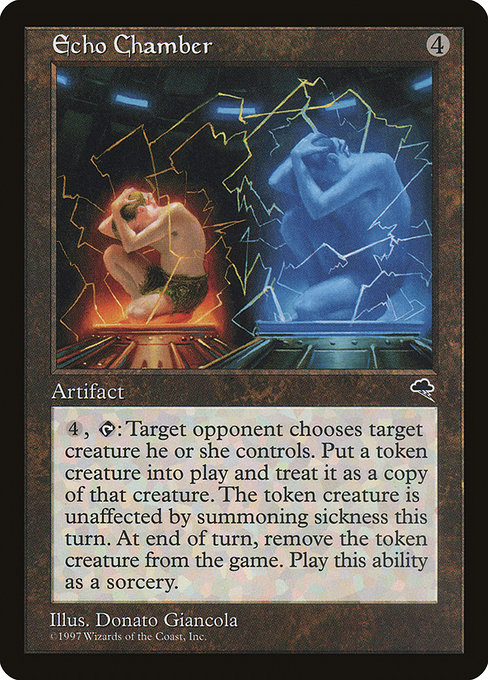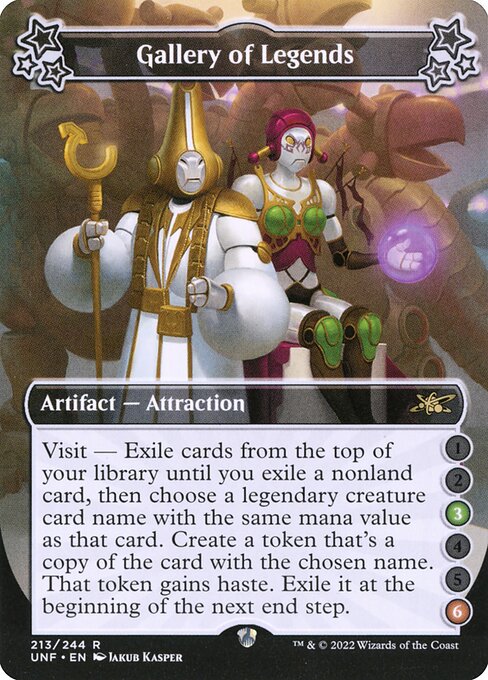Feather, Radiant Arbiter
Legendary Creature — Angel
Flying, lifelink
Whenever you cast a noncreature spell that targets only Feather, Radiant Arbiter, you may choose any number of other creatures that spell could target and pay for each of those creatures. If you do, for each of those creatures, copy that spell. The copy targets that creature. (Copies of permanent spells become tokens.)
Whenever you cast a noncreature spell that targets only Feather, Radiant Arbiter, you may choose any number of other creatures that spell could target and pay for each of those creatures. If you do, for each of those creatures, copy that spell. The copy targets that creature. (Copies of permanent spells become tokens.)
4/3
standard
future
historic
gladiator
pioneer
explorer
modern
legacy
pauper
vintage
penny
commander
brawl
alchemy
paupercommander
duel
oldschool
premodern
Rulings
You control all the copies, and you choose the order the copies are put on the stack. The original spell will be on the stack beneath those copies and will resolve last.
If the spell that’s copied is modal (that is, it says “Choose one —” or the like), the copies will have the same mode. You can’t choose different modes.
If you cast a noncreature spell that has multiple targets, but it’s targeting Feather, Radiant Arbiter with all of them, Feather’s last ability will trigger. In that case, each of those copies will also only target one of the chosen creatures.
You can’t choose to pay any alternative or additional costs for the copies. However, effects based on any alternative or additional costs that were paid for the original spell are copied as though those same costs were paid for the copy.
The token that a resolving copy of a permanent spell becomes isn’t “created” and won’t interact with abilities that care about tokens being created, such as that of Case of the Pilfered Proof.
Feather, Radiant Arbiter’s ability triggers whenever you cast a noncreature spell that targets only Feather and no other object or player.
If a permanent spell is copied, the copies are put onto the battlefield as a token as the spell resolves rather than putting the copy of the spell onto the battlefield. The rules that apply to a permanent spell becoming a permanent apply to a copy of a spell becoming a token.
If the spell that’s copied has an X whose value was determined as it was cast, the copies have the same value of X.
The copies created by Feather, Radiant Arbiter’s last ability are created on the stack, so they’re not cast. Abilities that trigger when a player casts a spell (like Feather’s own ability) won’t trigger.
Any choices made when the spell resolves won’t have been made yet when it’s copied. Any such choices will be made separately when the copy resolves.
If the spell that’s copied is modal (that is, it says “Choose one —” or the like), the copies will have the same mode. You can’t choose different modes.
If you cast a noncreature spell that has multiple targets, but it’s targeting Feather, Radiant Arbiter with all of them, Feather’s last ability will trigger. In that case, each of those copies will also only target one of the chosen creatures.
You can’t choose to pay any alternative or additional costs for the copies. However, effects based on any alternative or additional costs that were paid for the original spell are copied as though those same costs were paid for the copy.
The token that a resolving copy of a permanent spell becomes isn’t “created” and won’t interact with abilities that care about tokens being created, such as that of Case of the Pilfered Proof.
Feather, Radiant Arbiter’s ability triggers whenever you cast a noncreature spell that targets only Feather and no other object or player.
If a permanent spell is copied, the copies are put onto the battlefield as a token as the spell resolves rather than putting the copy of the spell onto the battlefield. The rules that apply to a permanent spell becoming a permanent apply to a copy of a spell becoming a token.
If the spell that’s copied has an X whose value was determined as it was cast, the copies have the same value of X.
The copies created by Feather, Radiant Arbiter’s last ability are created on the stack, so they’re not cast. Abilities that trigger when a player casts a spell (like Feather’s own ability) won’t trigger.
Any choices made when the spell resolves won’t have been made yet when it’s copied. Any such choices will be made separately when the copy resolves.
Rulings
You control all the copies, and you choose the order the copies are put on the stack. The original spell will be on the stack beneath those copies and will resolve last.
If the spell that’s copied is modal (that is, it says “Choose one —” or the like), the copies will have the same mode. You can’t choose different modes.
If you cast a noncreature spell that has multiple targets, but it’s targeting Feather, Radiant Arbiter with all of them, Feather’s last ability will trigger. In that case, each of those copies will also only target one of the chosen creatures.
You can’t choose to pay any alternative or additional costs for the copies. However, effects based on any alternative or additional costs that were paid for the original spell are copied as though those same costs were paid for the copy.
The token that a resolving copy of a permanent spell becomes isn’t “created” and won’t interact with abilities that care about tokens being created, such as that of Case of the Pilfered Proof.
Feather, Radiant Arbiter’s ability triggers whenever you cast a noncreature spell that targets only Feather and no other object or player.
If a permanent spell is copied, the copies are put onto the battlefield as a token as the spell resolves rather than putting the copy of the spell onto the battlefield. The rules that apply to a permanent spell becoming a permanent apply to a copy of a spell becoming a token.
If the spell that’s copied has an X whose value was determined as it was cast, the copies have the same value of X.
The copies created by Feather, Radiant Arbiter’s last ability are created on the stack, so they’re not cast. Abilities that trigger when a player casts a spell (like Feather’s own ability) won’t trigger.
Any choices made when the spell resolves won’t have been made yet when it’s copied. Any such choices will be made separately when the copy resolves.
If the spell that’s copied is modal (that is, it says “Choose one —” or the like), the copies will have the same mode. You can’t choose different modes.
If you cast a noncreature spell that has multiple targets, but it’s targeting Feather, Radiant Arbiter with all of them, Feather’s last ability will trigger. In that case, each of those copies will also only target one of the chosen creatures.
You can’t choose to pay any alternative or additional costs for the copies. However, effects based on any alternative or additional costs that were paid for the original spell are copied as though those same costs were paid for the copy.
The token that a resolving copy of a permanent spell becomes isn’t “created” and won’t interact with abilities that care about tokens being created, such as that of Case of the Pilfered Proof.
Feather, Radiant Arbiter’s ability triggers whenever you cast a noncreature spell that targets only Feather and no other object or player.
If a permanent spell is copied, the copies are put onto the battlefield as a token as the spell resolves rather than putting the copy of the spell onto the battlefield. The rules that apply to a permanent spell becoming a permanent apply to a copy of a spell becoming a token.
If the spell that’s copied has an X whose value was determined as it was cast, the copies have the same value of X.
The copies created by Feather, Radiant Arbiter’s last ability are created on the stack, so they’re not cast. Abilities that trigger when a player casts a spell (like Feather’s own ability) won’t trigger.
Any choices made when the spell resolves won’t have been made yet when it’s copied. Any such choices will be made separately when the copy resolves.
Votre collection ? vos decks ?
Envie de gérer votre collection et/ou créer des decks ?
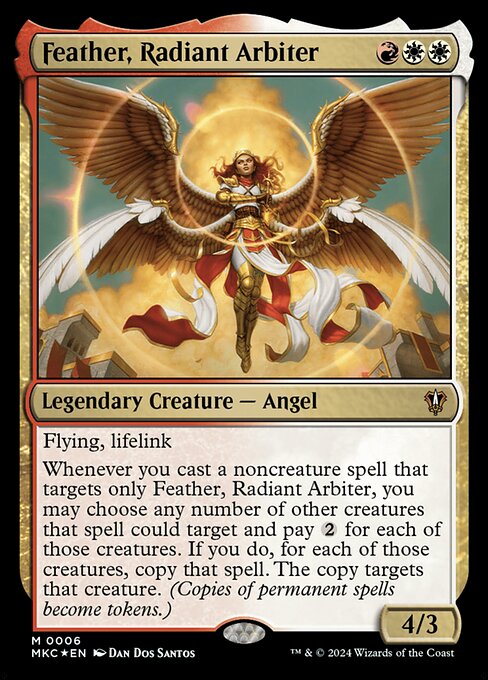

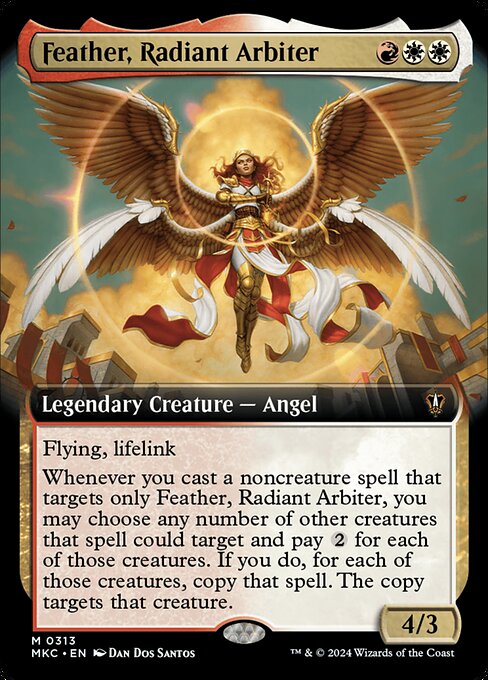
 0
0
 1.01€
1.01€
